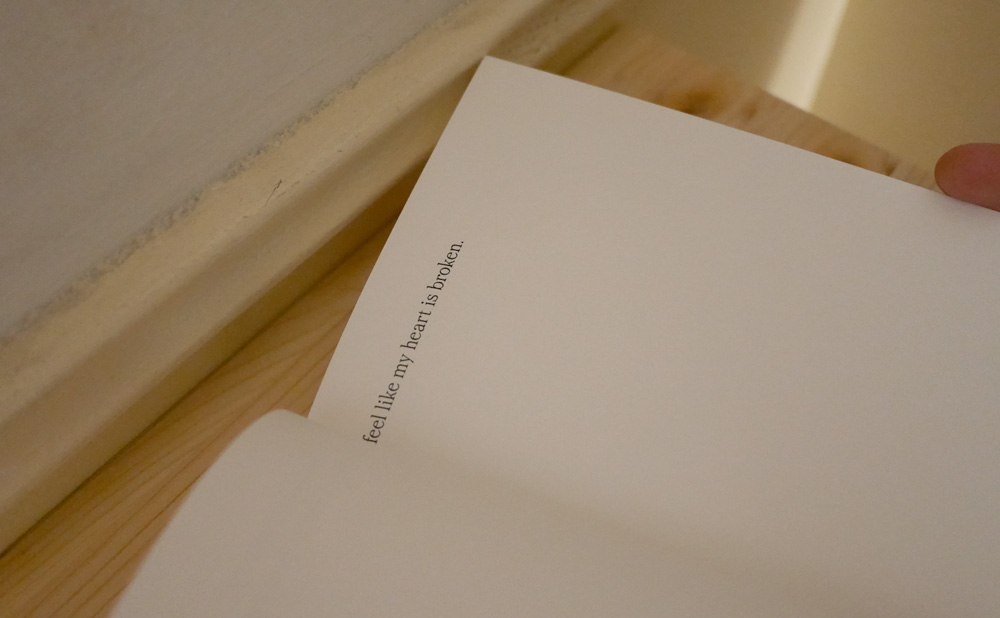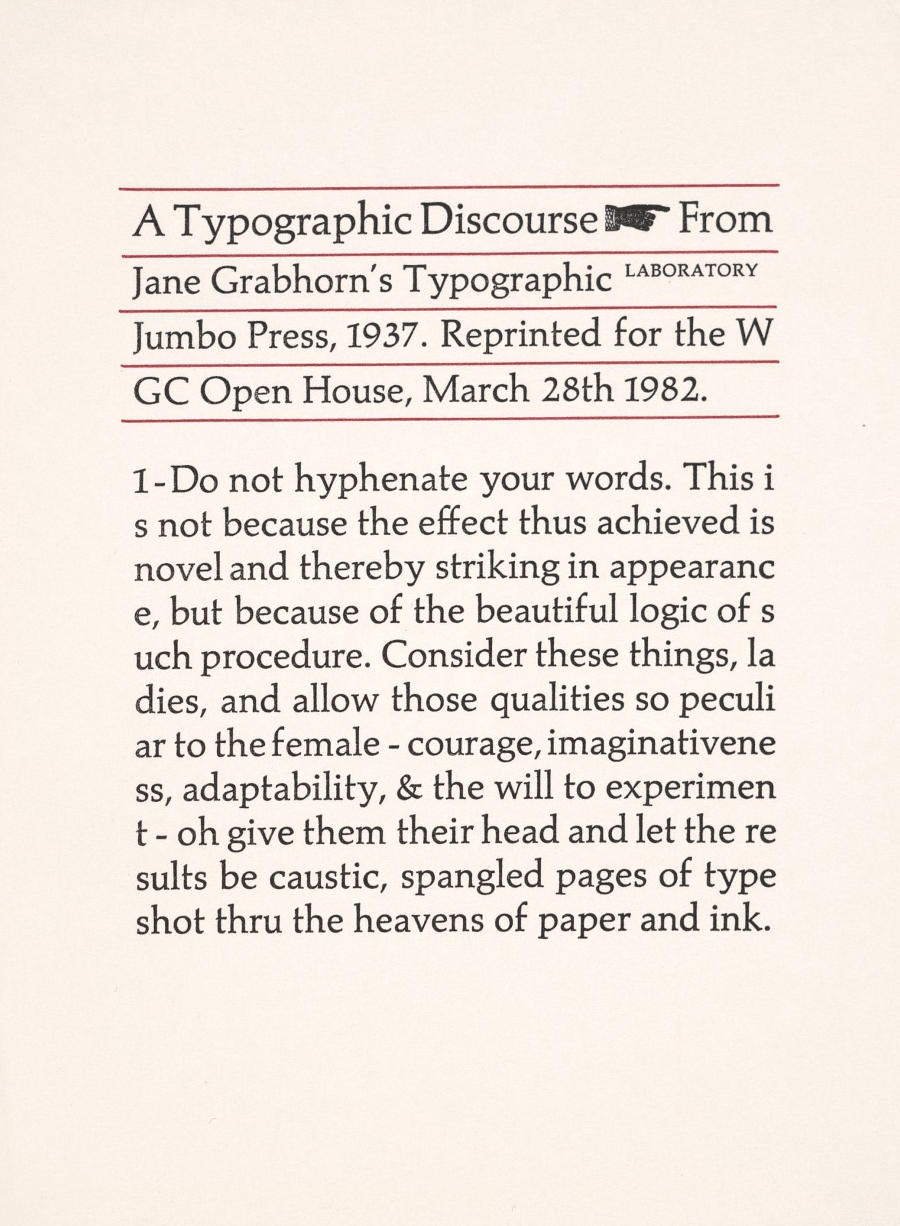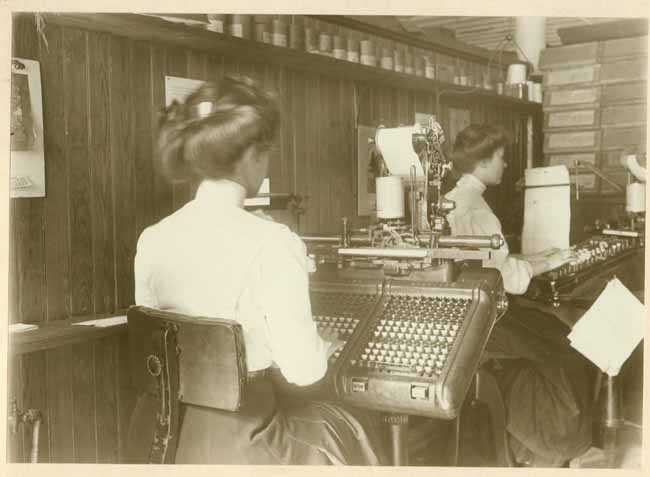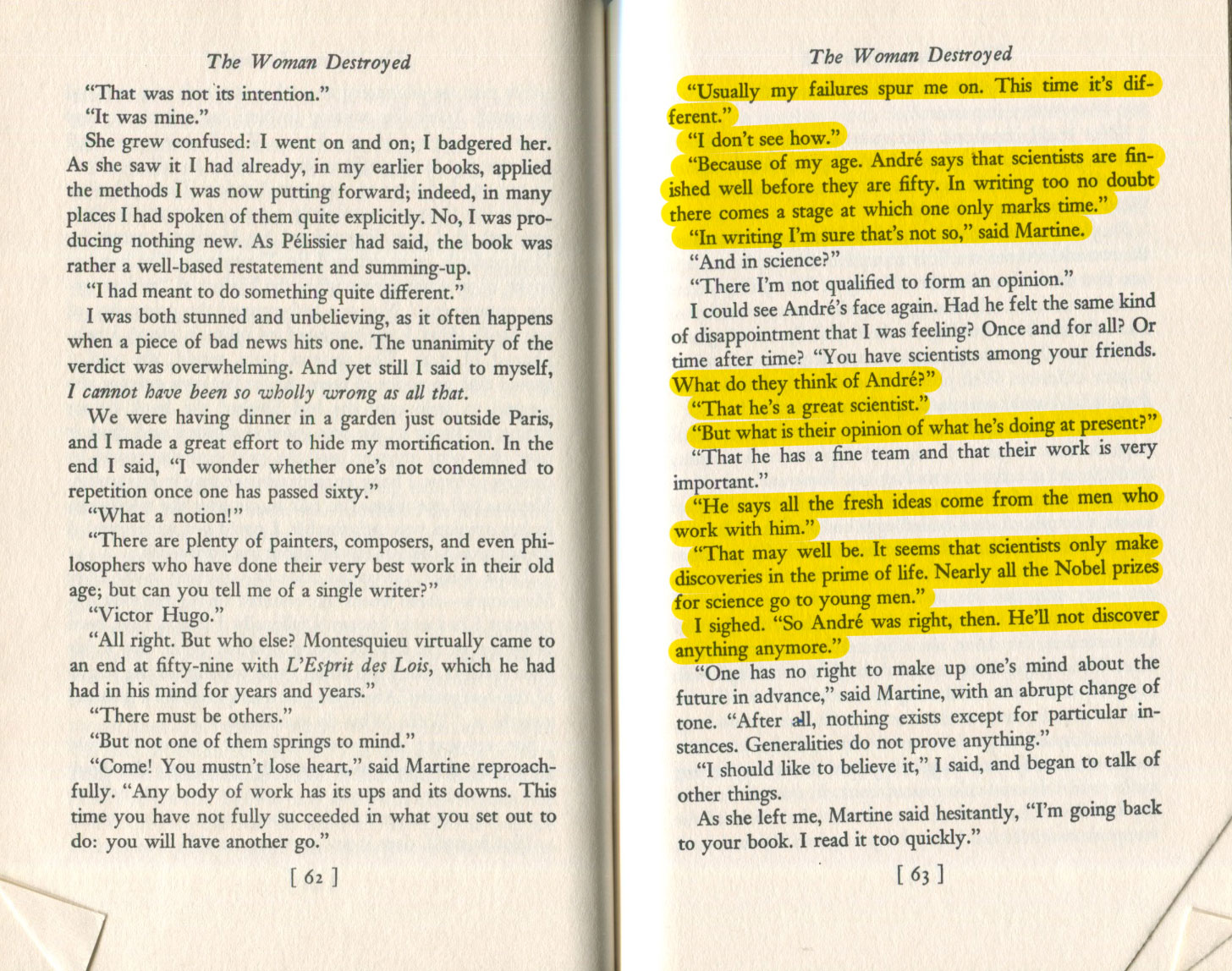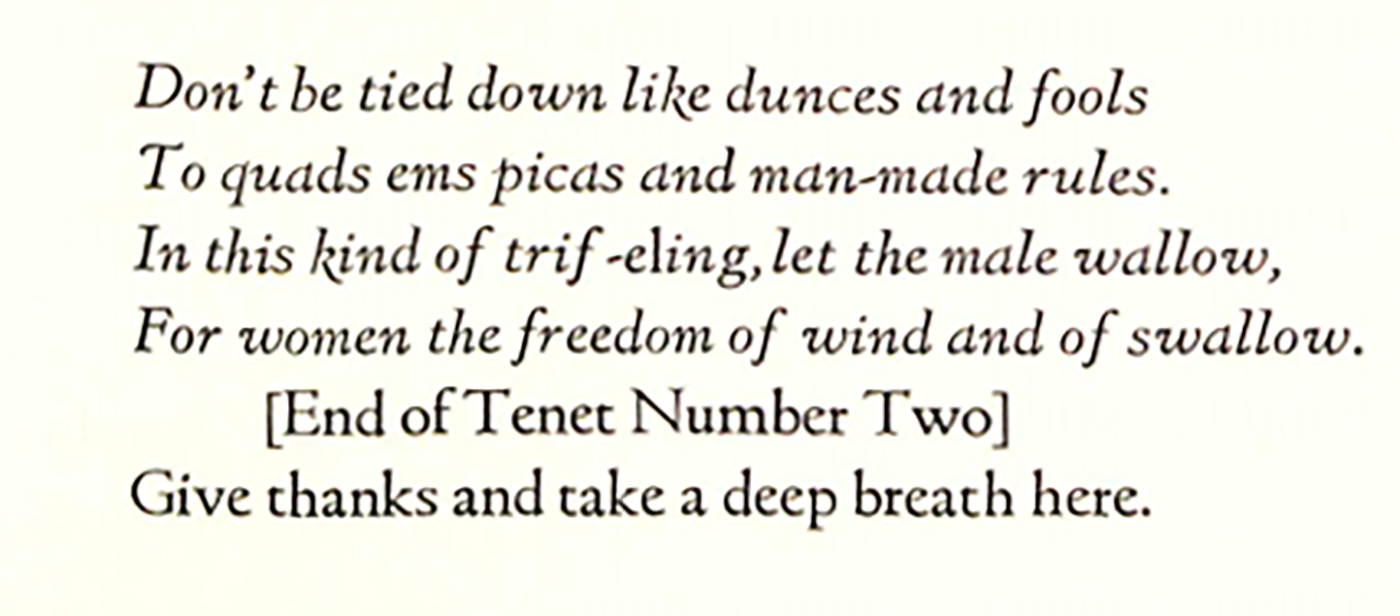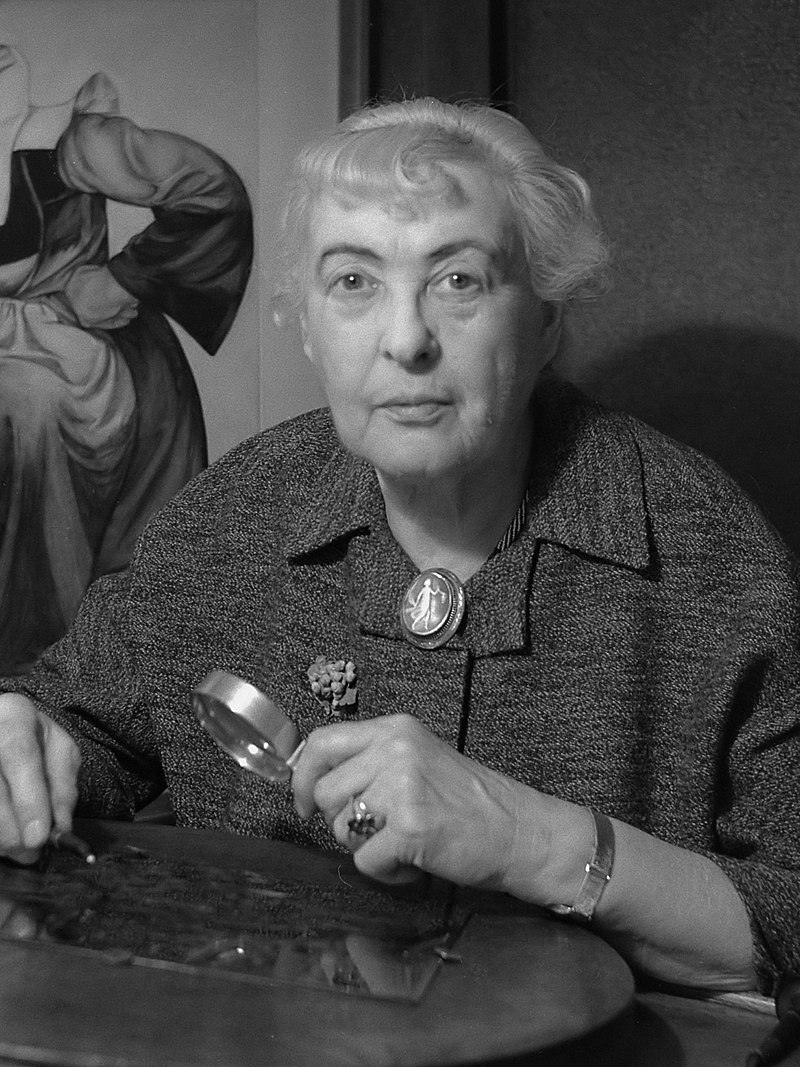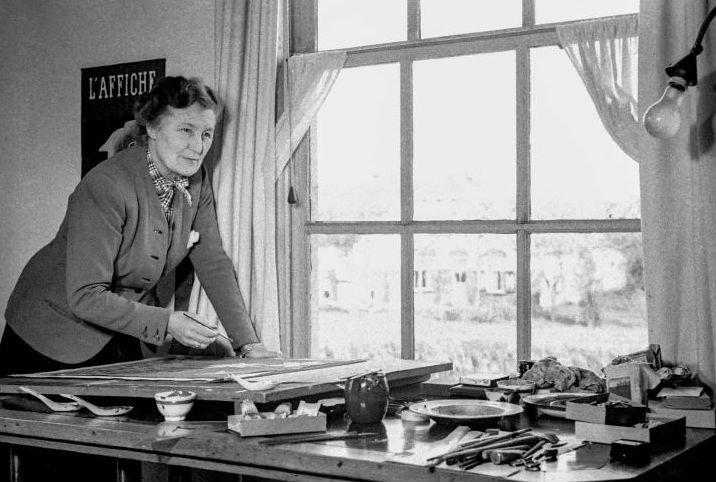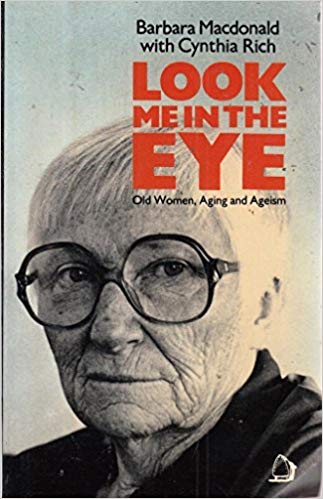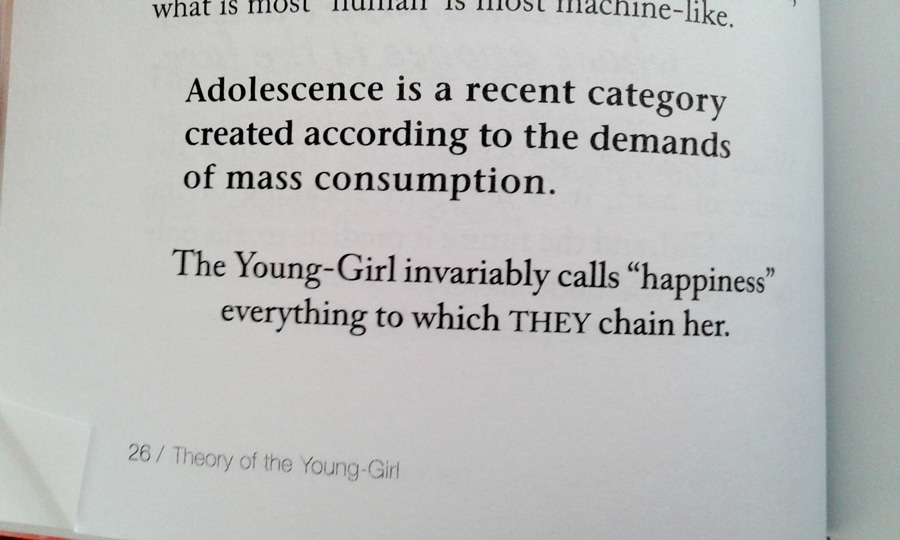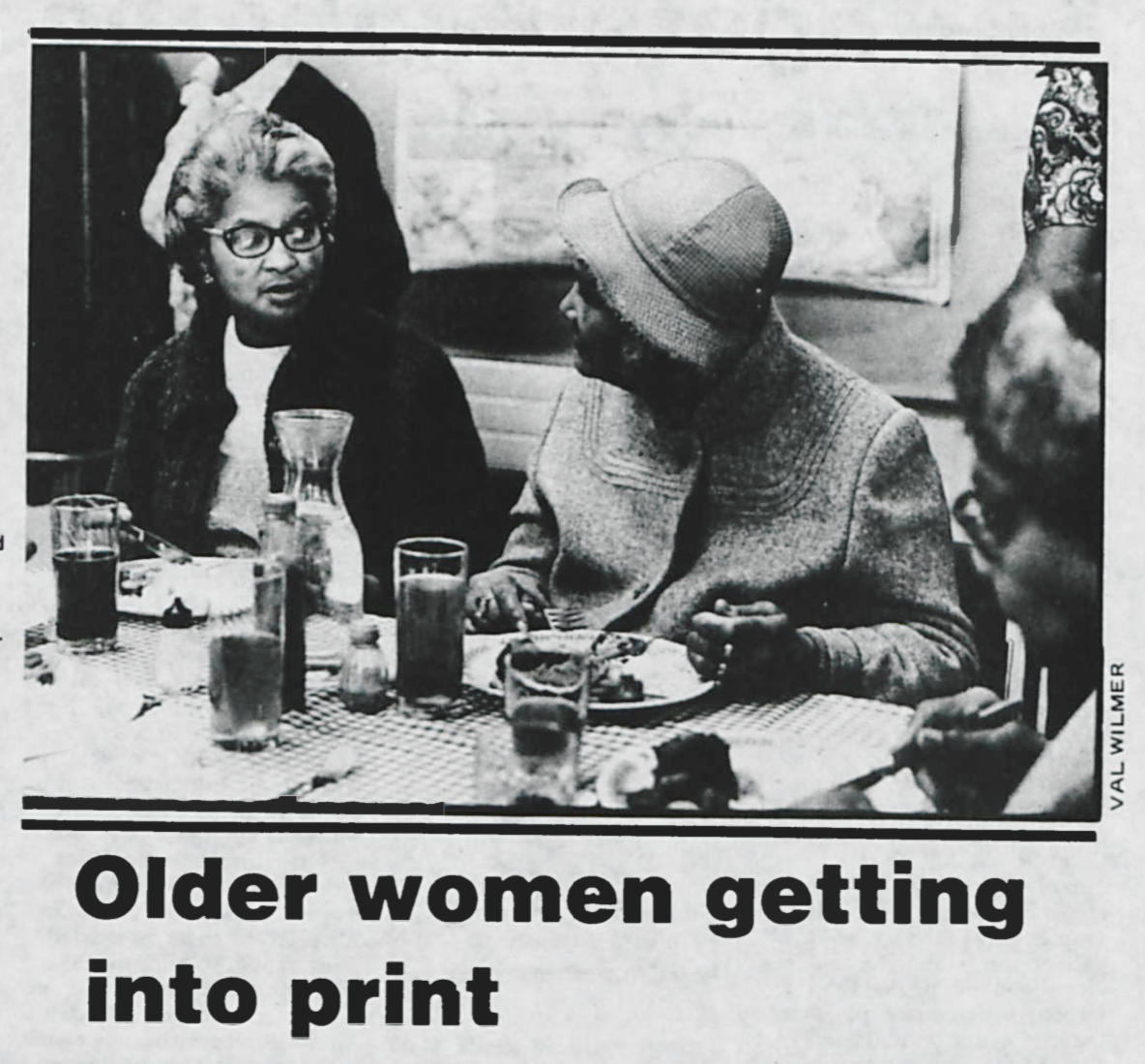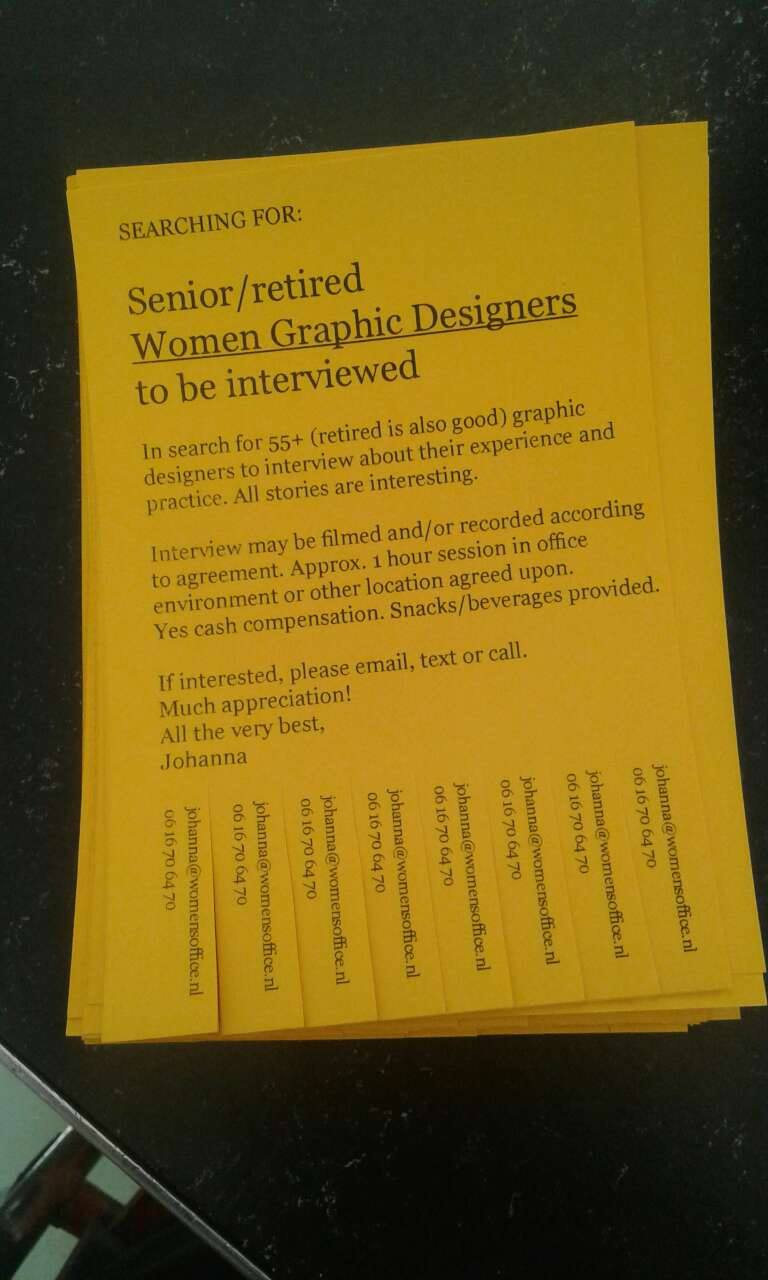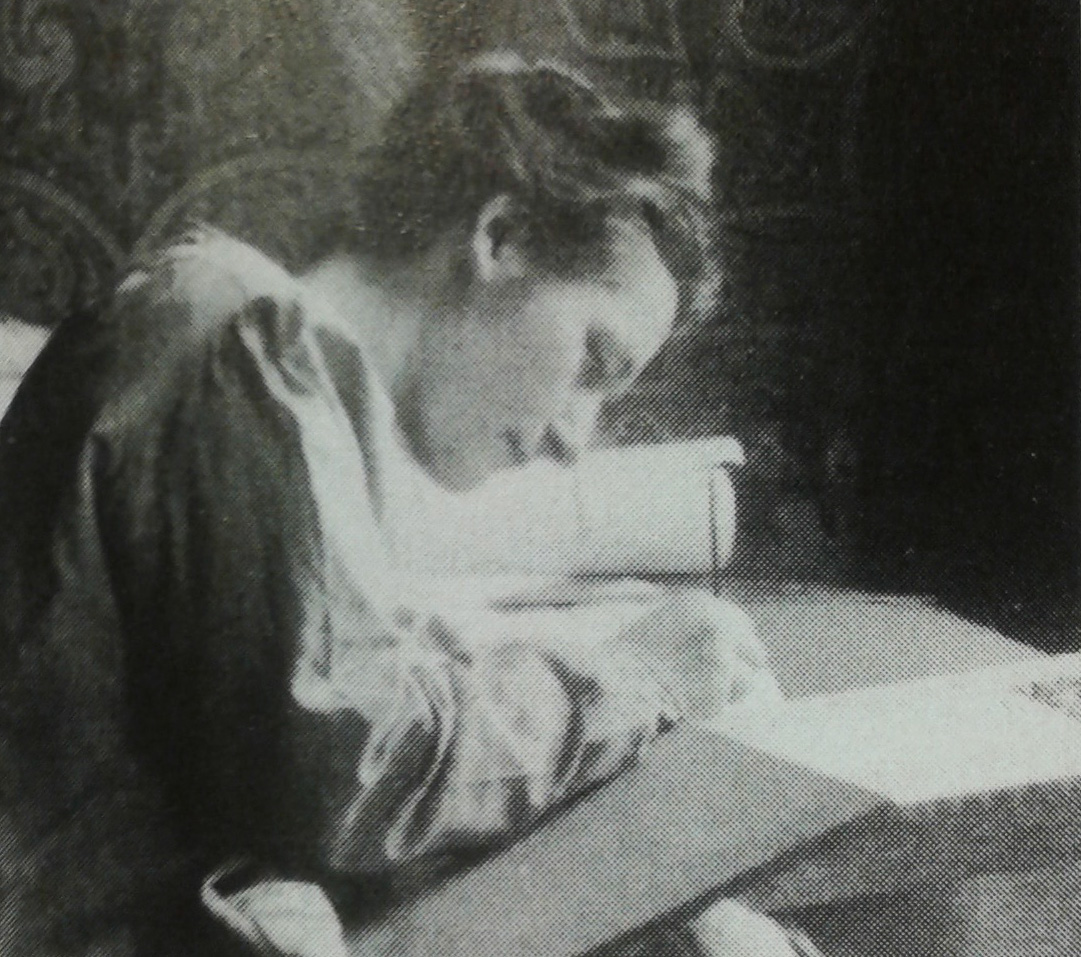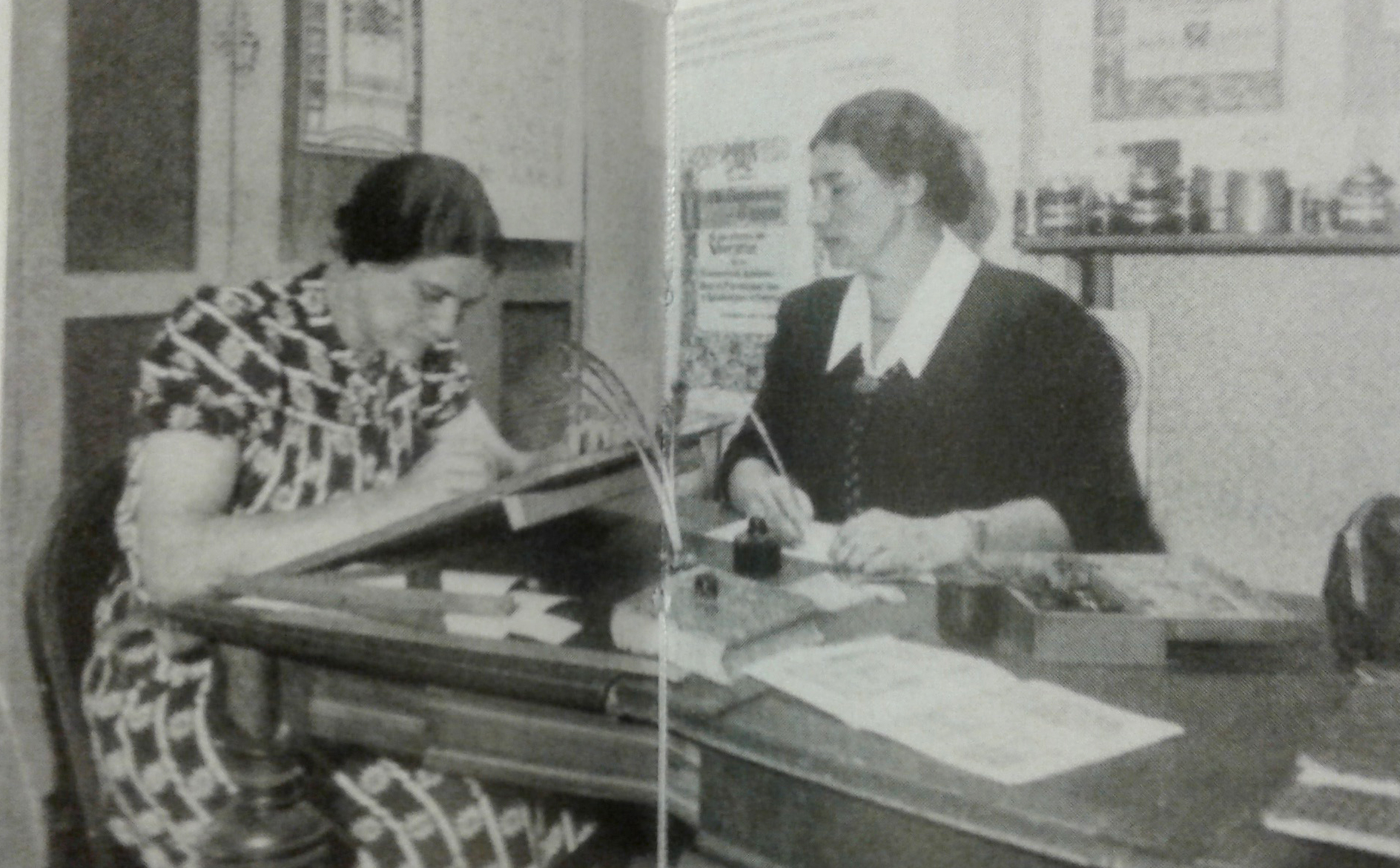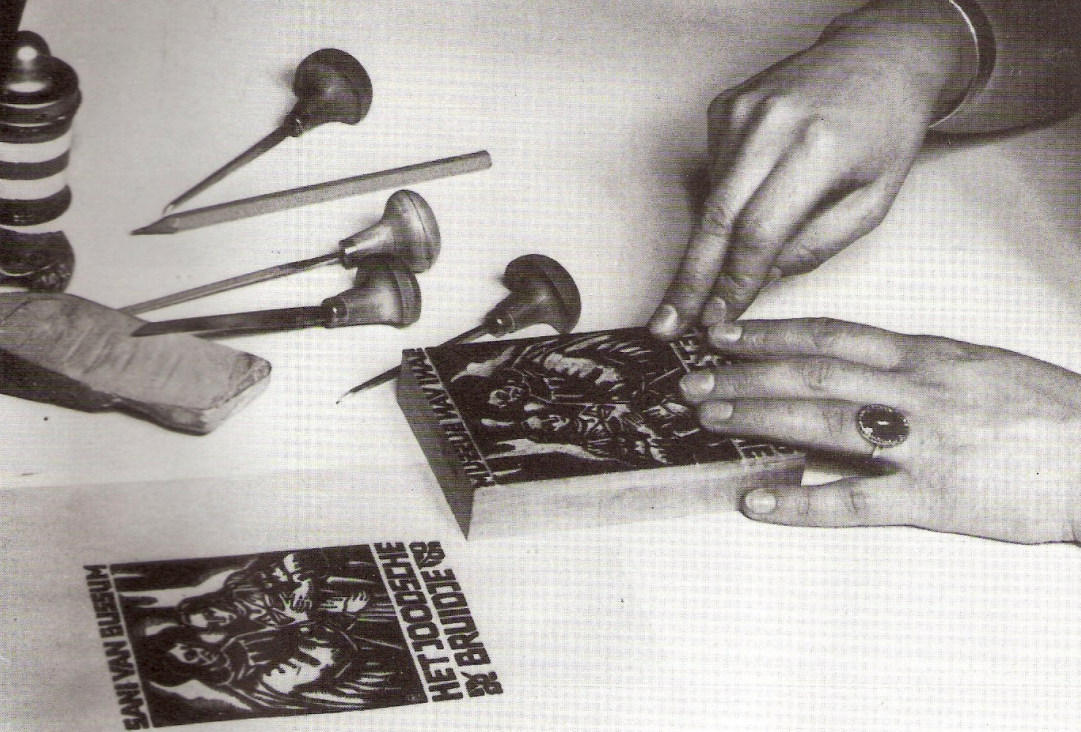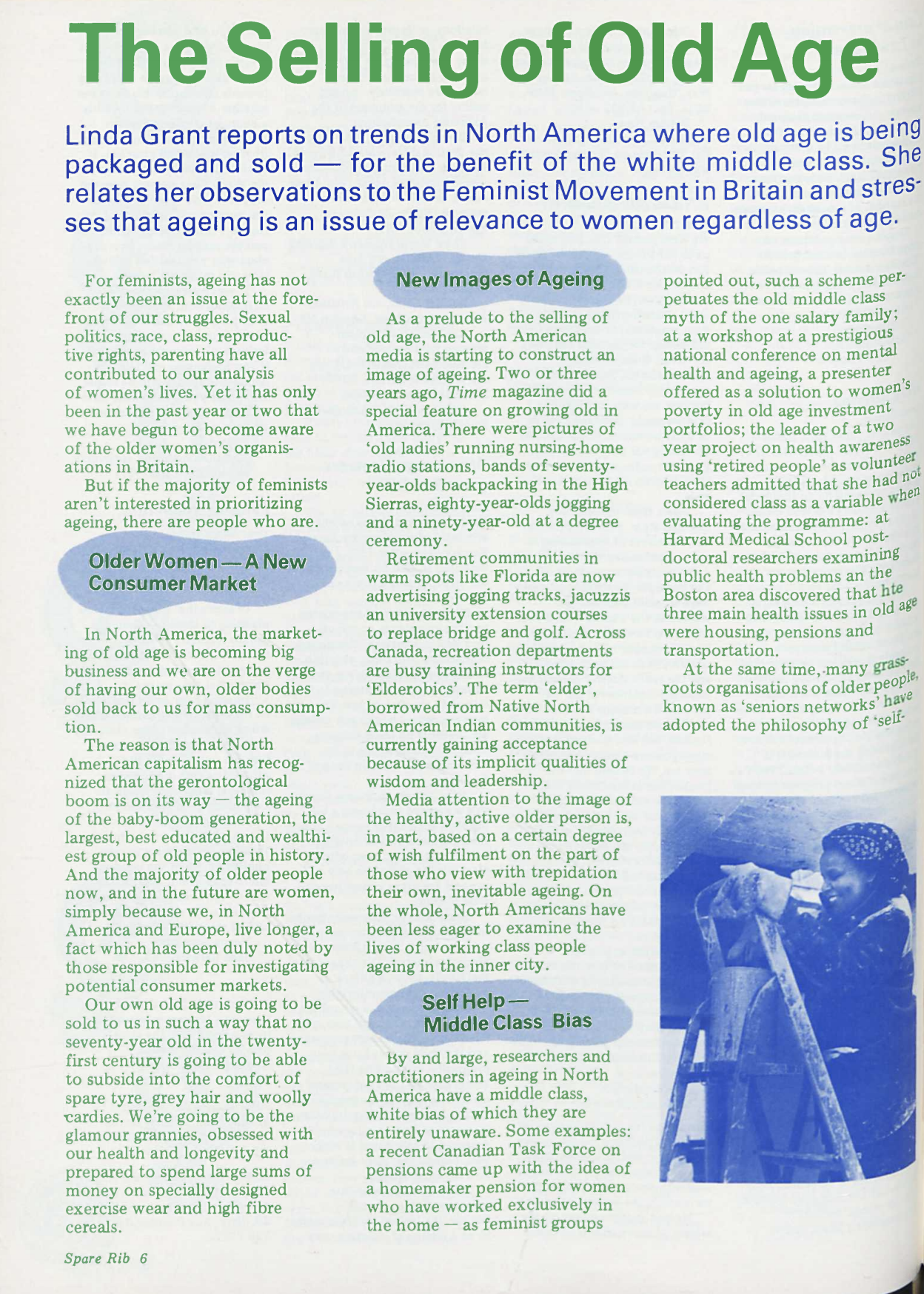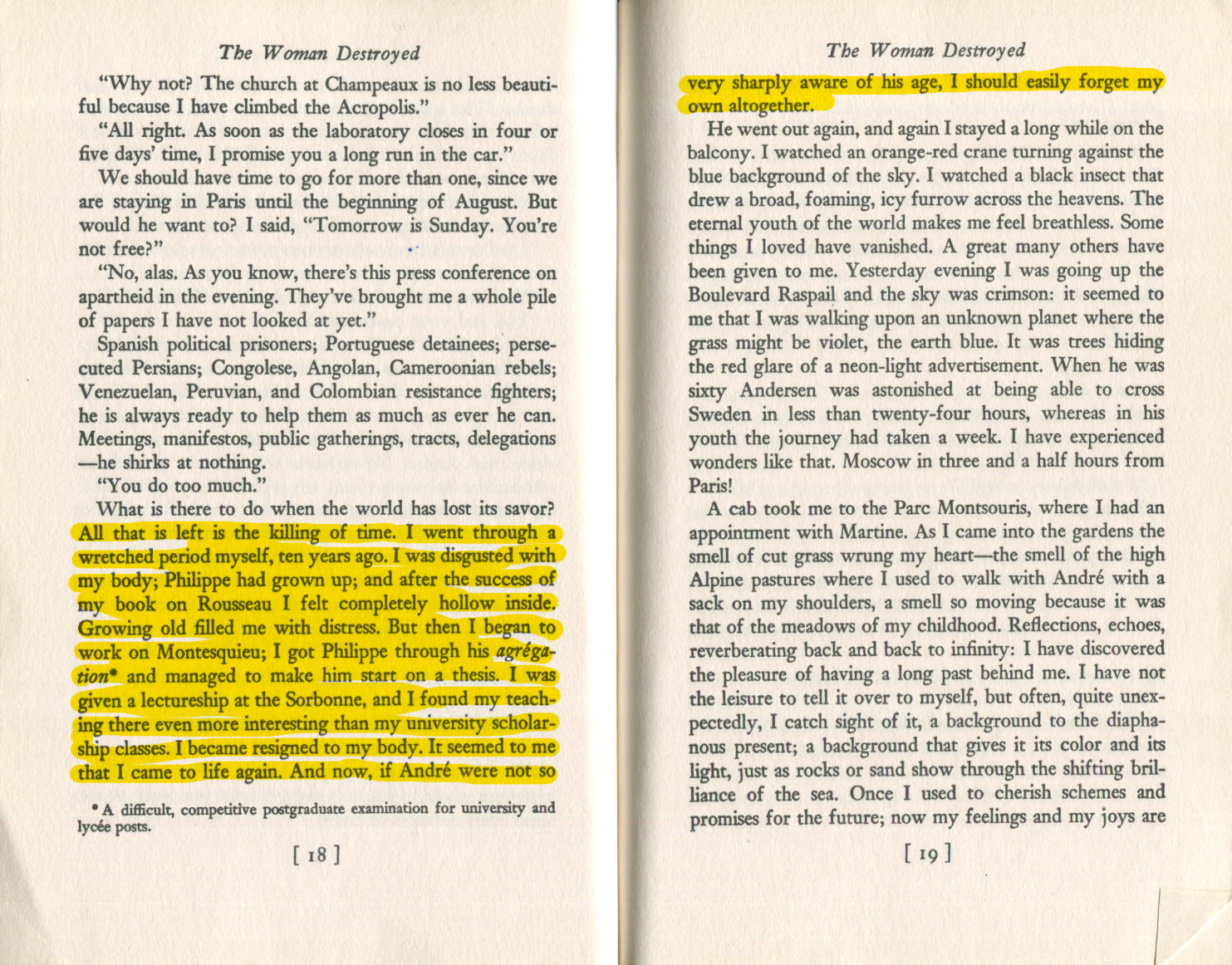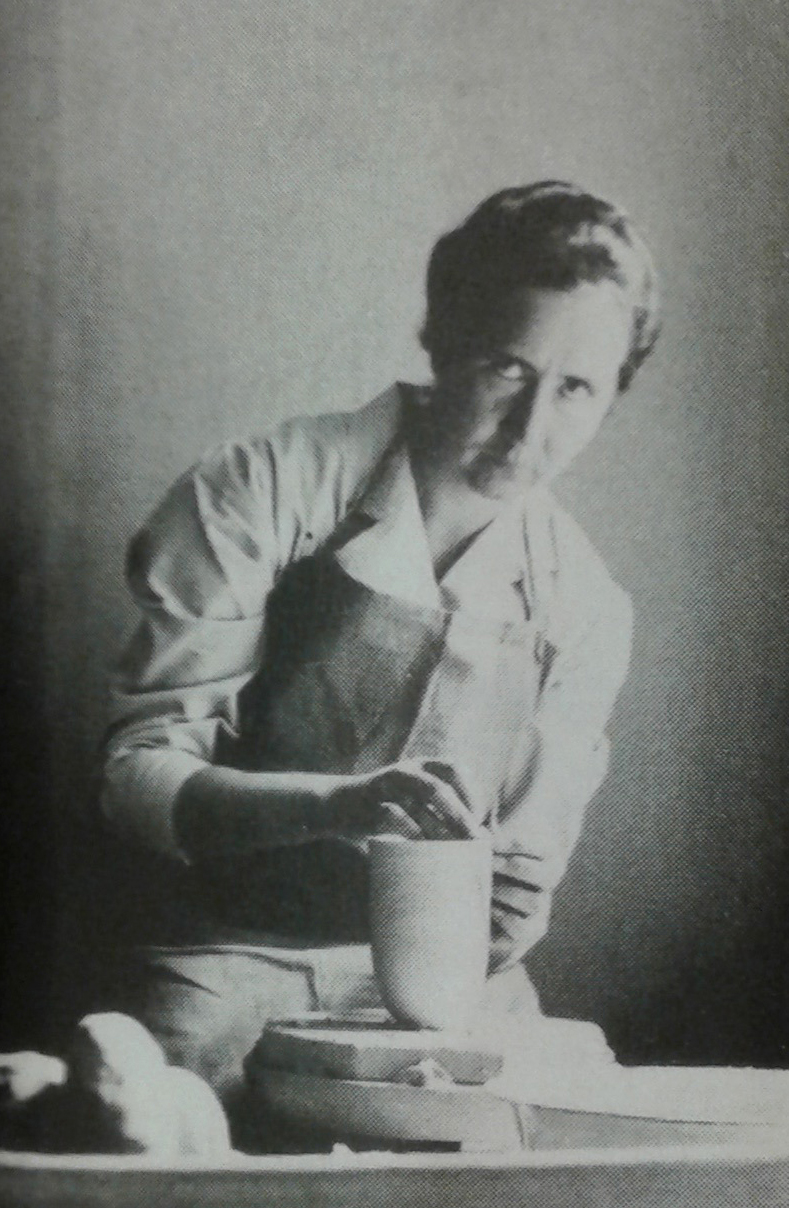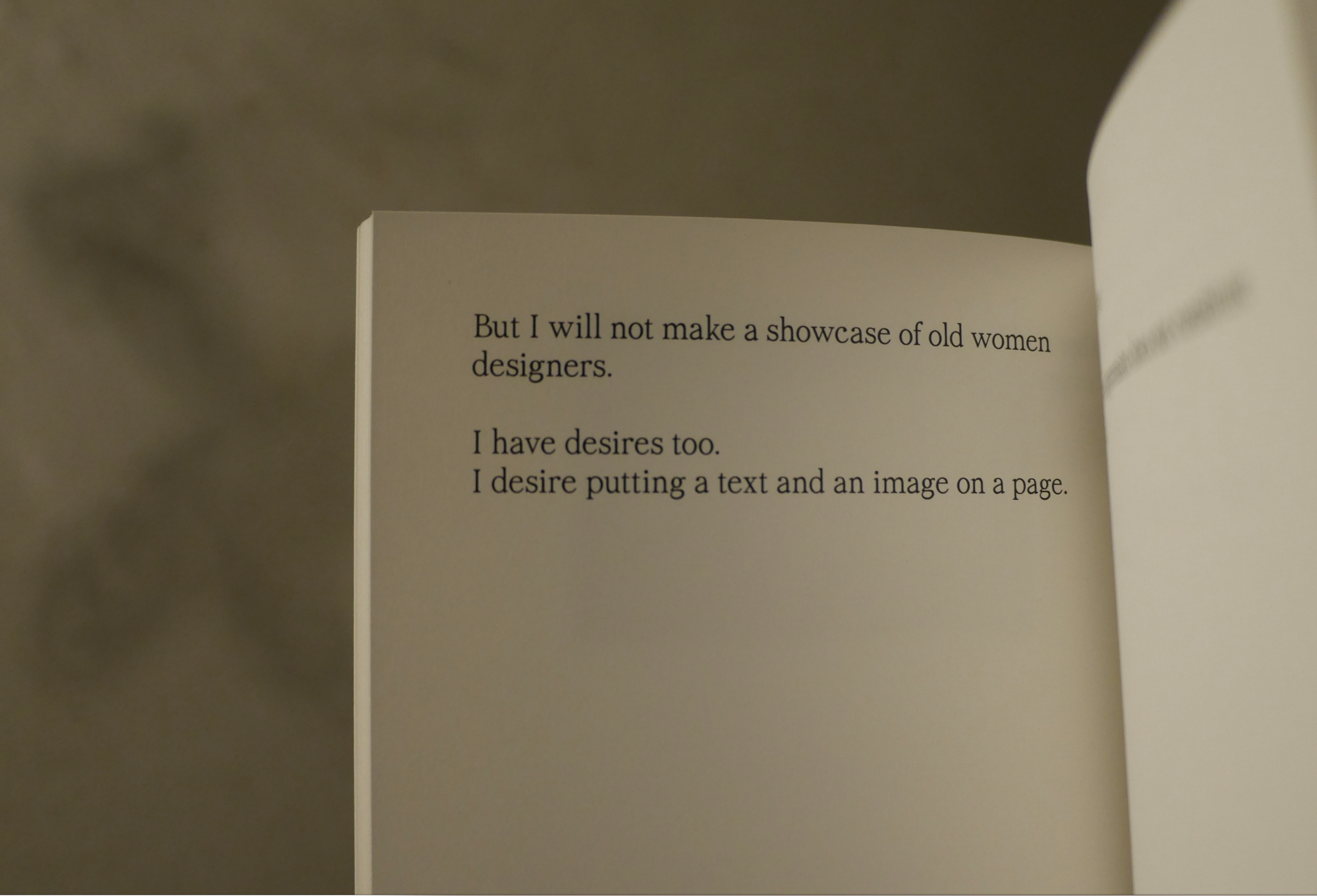Contact: johanna@womensoffice.nl
Rietlanden Women’s Office
Jacob van Lennepstraat, Amsterdam
Web Design: Johanna Ehde
Web Development: Fallon Does
(P)MGDS is funded by the Stimuleringsfonds.
- An old woman, Mina Loy Papers.
- Conditions for Work — The Common World of Women, Adrienne Rich, 1977.
- Collective Type and Noise Design, Andy G. Vidal and Johanna Ehde, 2019–.
- Complaints and disorders, Barbara Ehrenreich, 1971.
- En liten skara äro vi : en studie av typografer vid 1900-talets första decennier, Susanne Lundin, 1992.
- Look Me in the Eye: Old Women, Aging and Ageism, Barbara Macdonald and Cynthia Rich, 1991.
- Manifesto, Grace Grace Grace, 2020.
- Mapping menopause, Tori DeAngelis, 2010.
- The menopause and me – when you're gender neutral, Bunny Cook, 2019.
- The Middlepause: On Turning Fifty, Marina Benjamin, 2016.
- Motherhood, Sheila Heti, 2018.
- Old age isn't calm, See Red Women's Workshop, 1978.
- Out of Time: The Pleasures and the Perils of Ageing, Lynne Segal, 2012.
- People Who Menstruate
- Preliminary Materials for a Theory of the Young-girl, Tiqqun, 2001.
- The Psychological Problems of Aging, Erich Fromm, 1966.
- Sisters, Lovers, and Monsters: A Feminist Utopian Design Approach to Menopause Wellness, lecture by Shaowen Bardzell, 2019.
- small white monkeys: On self-expression, Self-help and Shame, Sophie Collins, 2017.
- Spare Rib, Issue 154, 1985.
- To Become Two, Alex Martinis Roe, 2018.
- Unseen Hands– Women Printers, Binders, and Book-Designers, exhibition material found at Princeton University Library, Graphic Arts Collection
- Vrouwen in de vormgeving in Nederland 1880-1940, Marjan Groot, 2007.
- Vuurvrouw in de Overgang, Facebook Group.
- The Woman Destroyed, Simone de Beauvoir, 1967.
- queermenopause, Tania Glyde, 2020.
This is the online archive of (Post)Menopausal Graphic Design Strategies – a project initiated by Amsterdam based graphic designer Johanna Ehde. The project's main objective is to gain practical knowledge into how to develop and maintain a life-long graphic design practice while considering issues such as sexist ageism, health care, and work in general.
Studies suggest that even though hormonal changes after menopause produce similar symptoms in many, cultural differences still shape how people experience this stage of life. In other words, with a decrease in social stigma, the “symptoms” may lessen.
It is important to underline that this project is not an attempt at trying to “make use” of menopause. It rejects individualistic wellness-thinking and the pressure to maintain a positive attitude. The word menopause is positioned as a counter-word to the often youth-centric, vital, ‘snappy’ language connected to both health and graphic design.
Click to select category
Click to deselect category
Click to enlarge image
Click to select all categories
-
Privilege, Yvonne Rainer, 1990. “Privilege begins with a documentary style exploration of the taboo subject of menopause and goes on to explore the historical medicalisation and trivialisation of women as they move beyond their child bearing years. Clearly ageism is a factor in this, but Privilege doesn't take on a pat victim mentality in it's exploration, rather widening it's gaze to consider the many competing forms of discrimination that exist in our society.” http://www.ubu.com/film/rainer_privilege.html
-
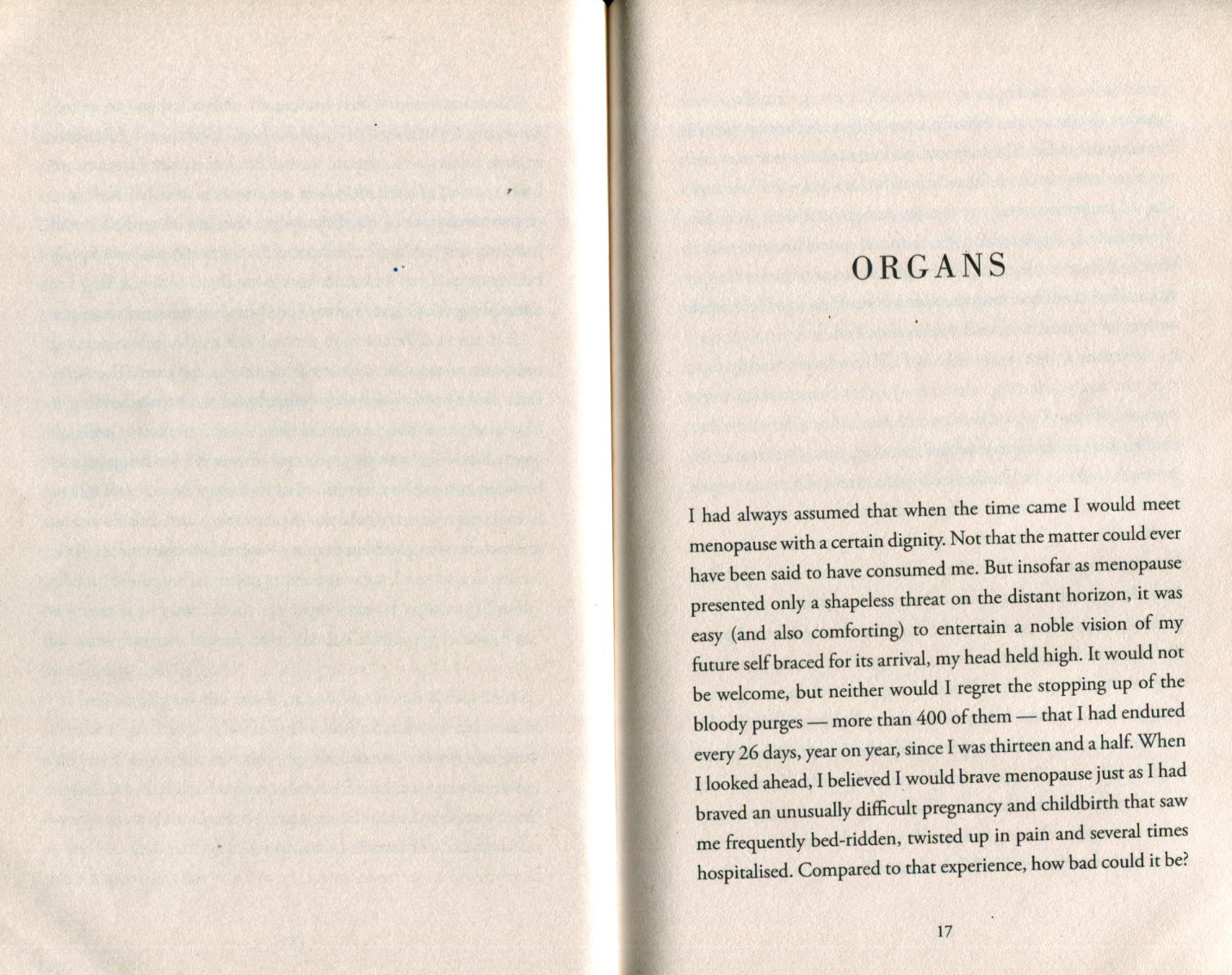
The Middlepause, Marina Benjamin, 2016.
-
“As we age, changing year on year, we also retain, in one manifestation or another, traces of all the selves we have been, creating a type of temporal vertigo and rendering us psychically, in one sense, all ages and no age. 'All ages and no age' is an expression once used by the psychoanalyst Donald Winnicott to describe the wayward temporality of psychic life, writing of his sense of the multiple ages he could detect in those patients once arriving to lie on the couch at his clinic in Hampstead in London.' Thus the older we are the more we encounter the world through complex layerings of identity, attempting to negotiate the shifting present while grappling with the disconcerting images of the old thrust so intrusively upon us. 'Live in the layers, / not on the litter', the North American poet Stanley Kunitz wrote in one of his beautiful poems penned in his seventies.”
Out of Time: The Pleasures and the Perils of Ageing, Lynne Segal, 2012.
-
1
I see four 50 something women sharing a bag of "tiny toblerones" at the gate. It is 6 AM. One wears a hoodie that reads Urban dreamer. One has an asymmetrical, short haircut with a huge, bright red highlight. A purse made from cow fur. Another wears a t-shirt with a print over the chest: Cliché. A camouflage bag, the latest sneakers. Red highlight is lowdly recording an audio message. Cliché proudly shows her business card to the others. They all approve. A small, pink perfume bottle in the shape of a bow is pulled out of the cow fur bag, accompanied by unashamed singing "There’s a possibility for a new love..."
December 2018 (P)MGDS Diary Entry
-
“We demand recognition of our grace which has been hard won over many years on contested ground, not handed to us by approval.
We share and recognise our debt to each other. We reject an art market capitalising on the myth of uniqueness and narratives of the singular heroic figure, with traction and trend dominated by the cult of youth and warped notions of beauty. We intend to rupture the symbolic from within, and borrow from the saboteurs of the big daddy mainframe. We demand the abjuration of male-controlled and imperialist systems of oppression which we understand as exploiting women for labour and demeaning our grace.
We hold violence in contempt. We hold deliberate ignorance and narrow horizons in contempt. We hold patriarchal geo-political justifications for greed and power in contempt. We hold the laws of our fore-fathers and current tyrants which renders a person illegal or deserving of poverty, in contempt.
We demand vegetables, tenderness and trust. We demand clean water and poetry. We demand blankets, dappled light and a woman’s right to choose. We demand mechanisms to grace and protect feminist liberties. We demand pluralism, promotion of ideas and innovative methods to break the monopoly enjoyed by patriarchs and messianic preachers of cultural orthodoxies. We demand an understanding of life as a truly communitarian experience and expect a population that is respectful of older women as infinitely precious and possessed of capacities for reason, art and love.
Therefore:
We demand the revocation of all contracts for military purposes, and a total ban on the use of fossil fuels. We demand sustainable agriculture, a comprehensive re-nationalisation of our public health and social care, education and transport systems and all other commonly held necessary structures. We demand rigorously implemented, loophole free, fair and progressive taxation to pay for the well-being of all – according to need and awarded with grace.
AND WE DEMAND our rightful place in the aesthetic values of our culture, securing and ensuring the recognition that we are exquisite, beguiling and learned, for ourselves, for each other, and for all to see.
Signed:
Grace
Grace
Grace
KM for GGG with acknowledgement to Valerie Solanas, Mary Wollstonecraft, VNS Matrix et al. © 2020 Grace Grace Grace”Manifesto, Grace Grace Grace, 2020.
-
“One of the first questions on the psychological problems of ageing, that we have to answer is: Is old age something embarrassing? Is it a painful stage on the way out which should be sugar-coated with all sorts of words, or is it just a stage of life like adolescence, like infancy, like middle age; is the problem not the same as it is with all stages of living, namely, how do we live well and how are we most alive in that particular stage?
One may meaningfully speak of an art of living and may therefore say that the art of aging is just as important a chapter — in the art of living — as the art of being a child and the art of being an adolescent.
Quite obviously, the whole problem of old age Is a problem of modern industrial society, Old age was very rare one hundred years ago or even fifty years ago. To live to see ones grandchildren or one's great-grandchildren was a great exception then, while today it has become more and more frequent. It is quite clear that old age is a problem created by modern Industrial society. It is primarily a problem of the progress in medicine which is only a part of the general progress in science and in technology.”The Psychological Problems of Aging, Erich Fromm, 1966.
-
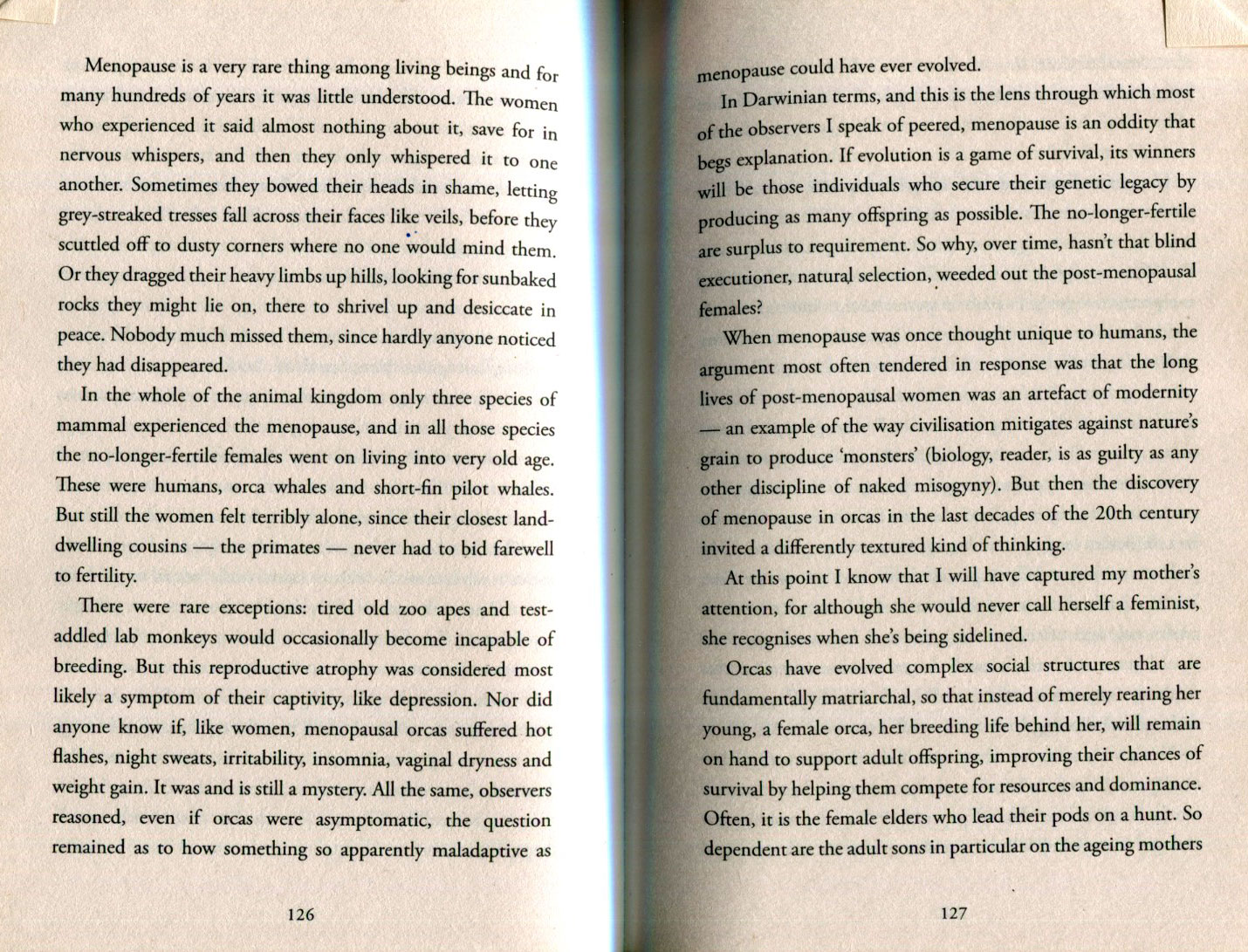
The Middlepause, Marina Benjamin, 2016.
-
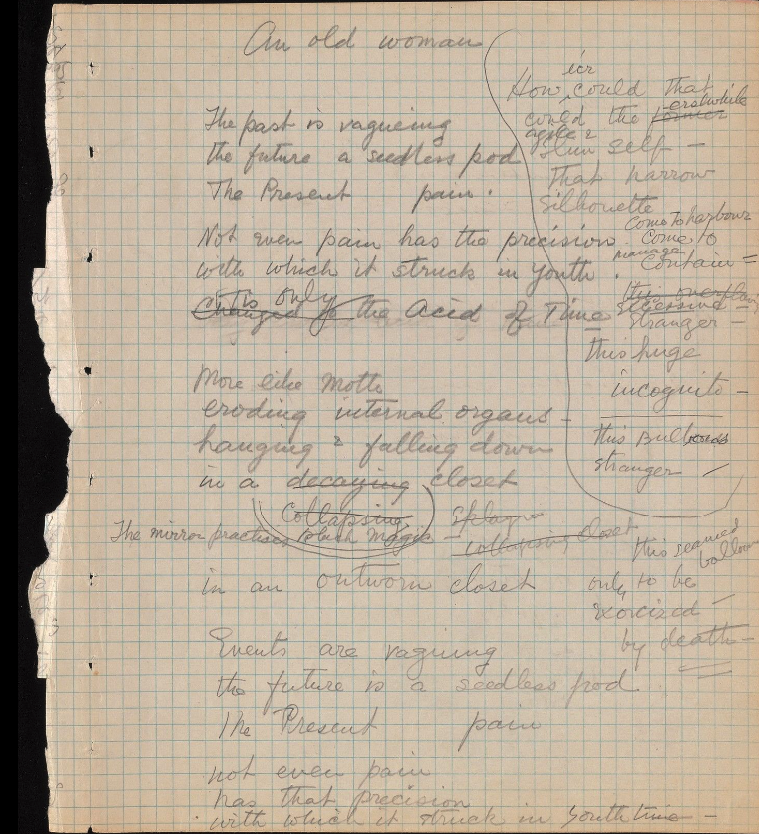
An old woman, Mina Loy Papers.
-
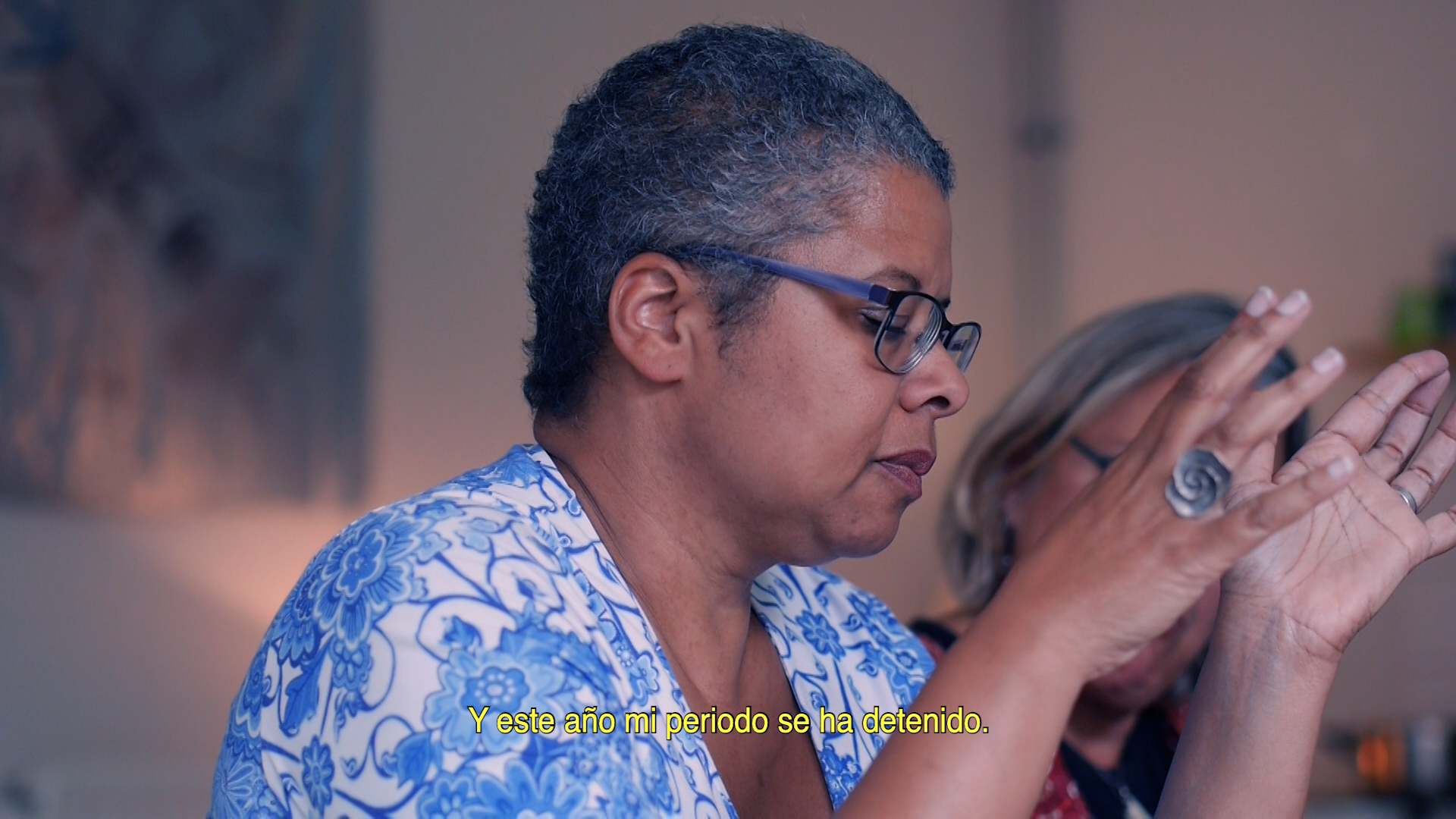
“It’s funny. You see I’m not only old, I am also a person of colour. And I feel that in my work that is probably more of an issue”
Video still from Cry Till I Die, Johanna Ehde, 2019. -
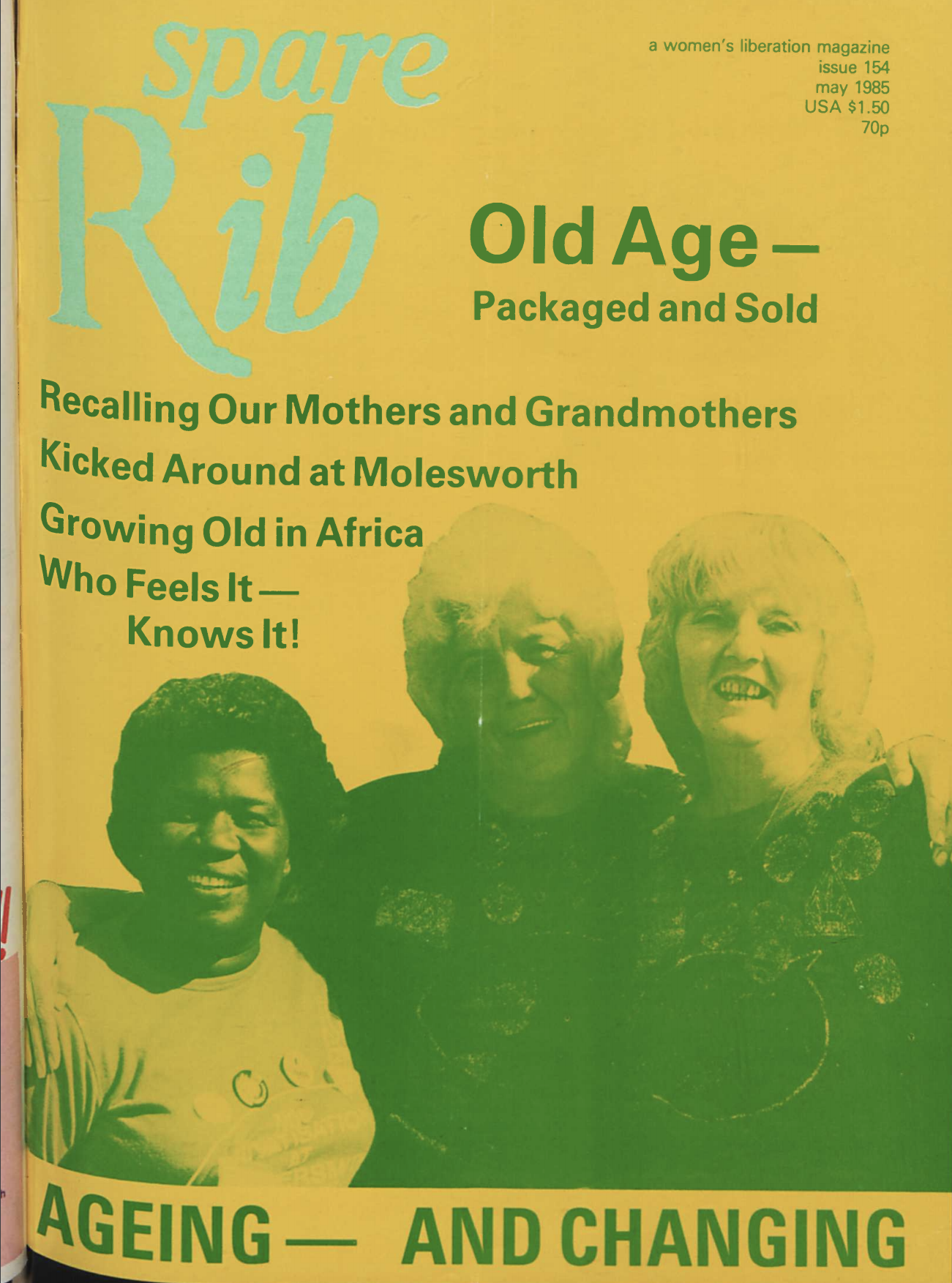
-
“Women are born with pain built in”
Fleabag, Phoebe Waller-Bridge, 2019. -
“Medicine’s prime contribution to sexist ideology has been to describe women as sick, and as potentially sickening to men. Of course, medicine did not invent sexism. The view that women are “sick,” or defective versions of men, is as old as Eden. In the traditions of Western thought, man represents wholeness, strength, and health. Woman is a “misbegotten male,” weak and incomplete. Since Hippocrates bewailed women’s “perpetual infirmities,” medicine has only echoed the prevailing male sentiment: it has treated pregnancy and menopause as diseases, menstruation as a chronic disorder, childbirth as a surgical event. At the same times woman’s “weakness” has never barred her from heavy labor; her “instability” has never disqualified her from total responsibility for child raising.”
Complaints and disorders, Barbara Ehrenreich, 1971.
-
“...It is a rapid and catastrophic onslaught in which alarming changes bubble forth, unstoppable. What is more, these changes are enacted not around you, but on your very person. Written on the body. As indelible as ink. Somewhat surprisingly, there are still very few written accounts of what it feels like to be or to become middle aged. Back in 1970, when Simone de Beauvoir broke ground by writing with scholarly seriousness and emotional candour about the process of ageing and society's marginalisation of the elderly, she talked of the 'conspiracy of silence' surrounding the subject. Four and a half decades on, it is midlife that seems now to be the hush-hush affair. Menopause in particular is still largely undiscussed (except as a joke, which only proves how little our culture wishes to engage with it), to the point where legions of women are not even sure about what happens to their own bodies in menopause, where its causes lie, how long its symptoms last, and most especially what they can expect from life on the other side.”
The Middlepause, Marina Benjamin, 2016.
-
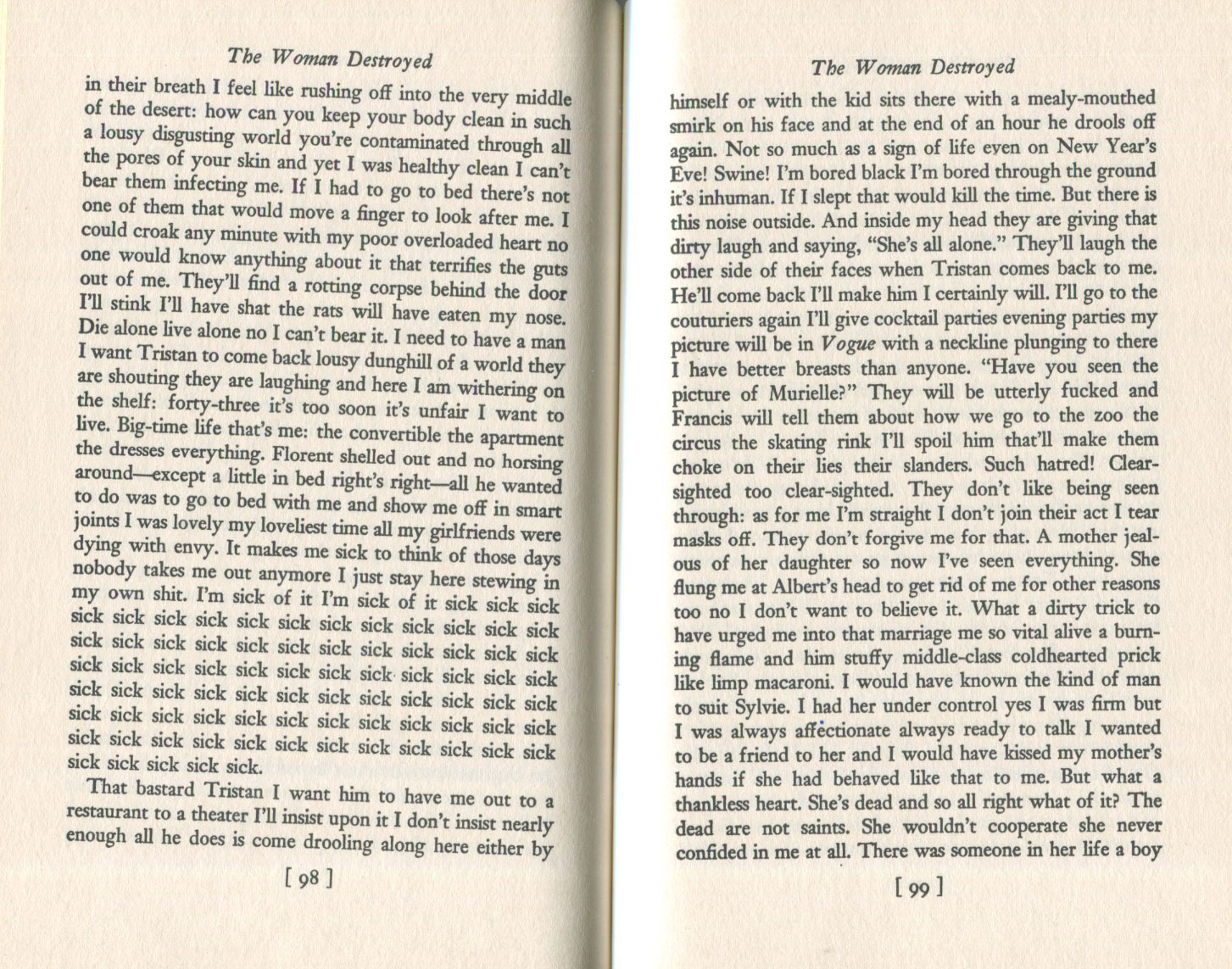
The Monologue, The Woman Destroyed, Simone de Beauvoir, 1967.
-
“The sense of the self as meat, as the heap of an organ variously filled with ovaries or flanked by balls, is the bash from which emerge the aspiration and finally the failure of the Young-Girl to give herself form, or at the very least to simulate one. This feeling is not merely a lived consequence of the aberratios of Western metaphysics—which wants the formless to precede form, brought to it from outside—it is also what market domination must perpetuate at all cost, and which it constantly produces by rendering all bodies equivalent, by degenerating forms-of-life, by continually imposing an undifferentiating confusion. The loss of contact with the self, the crushing of all intimacy with the self, which makes the sense of self meat—these form the condition *sine quo non* for readopting the techniques of the self that the Empire offers for consumption. *The depth of penetration of this consumer junk can be read in the intensity of the feeling the self as meat.* ”
Preliminary Materials for a Theory of the Young-girl, Tiqqun, 2001.
-
“In Lyric Shame Riley writes of her own distress: 'my own aim is to finally convert “shame” into a bearable sadness. When the pressure of shame itself can become a productive force, the lyric poem might sometimes just be one way of enacting and demonstrating this conversion...'. Ultimately, Riley believes in shame as a sadness that can be sung. I feel my own shame hardening into an anger that will power me indefinitely. Ana Mendieta, another artist, believed that all art comes out of sublimated rage — 'rage and displacement'. I am angry because I have been ashamed for that of which I ought not to have been made to feel ashamed, and, as I now know, anger is a battery. From an interview with poet Lisa Robertson:
I think that anger indeed can become productive. Especially if one gives oneself the space for reflection too. And certainly anger can aerate the debilitating sadness that is another response to the rampant institutional misogyny that structures much public and commercial discourse.”small white monkeys: On self-expression, Self-help and Shame, Sophie Collins, 2017
-
“I never had a problem with menopause. I only had a problem with men.”
The response from a friend's mother when asked about her experience with menopause.
-
“...While the ReSTAGE researchers didn’t find ethnic differences in the two phases categorizing the menopausal transition, others are zeroing in on symptom differences among ethnic groups with the aim of improving health-care delivery. In Freeman’s sample, for instance, African-American women were more likely than white women to report hot flashes, aches and depression during the transition. Similarly, an ongoing longitudinal study of 3,302 African-American, Japanese-American, Chinese-American and Hispanic women funded by the National Institutes of Health, called the Study of Women’s Health Across the Nation found that African- American women and Hispanic women reported more hot flashes and night sweats than the other groups, while Japanese-American and Chinese-American women reported fewer hot flashes but more body aches.
That said, African-American women had more positive attitudes toward the menopause than the four other groups. In community interviews, the team gleaned possible reasons why: The African-American women said they’d experienced much worse difficulties than menopause — such as racism — and reported spending a lot of time with older female relatives, who gave them a more realistic view of the transition.”Mapping menopause, Tori DeAngelis, 2010.
-
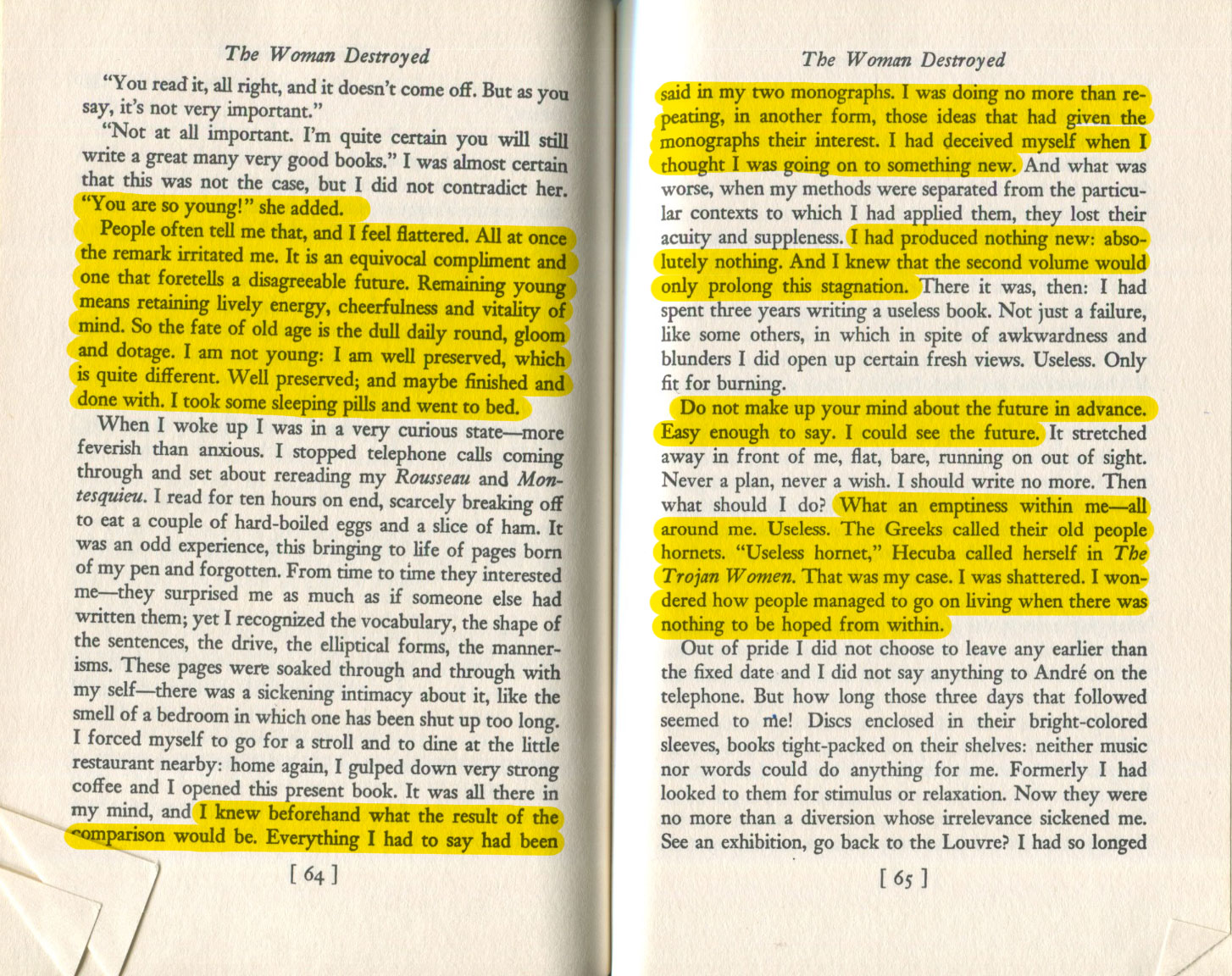
The age of discretion, The Woman Destroyed, Simone de Beauvoir, 1967.
-
“I'm living with my mother and experiencing a departure from menstruation at the same time as her. We get to share that in a way most inter-generational relationships don't. In different ways, we've both experienced a lack of proper information— she's dealing with misogyny creating a desert of information about menopause, and I'm suffering from a lack of research into how bodies like mine work, lack of recognition that bodies like mine are even possible. Sometimes I cramp. I'm not sure if it's all that's left of a period, now that I'm 9 months on T, or if there's something wrong. I'm hesitant to ask a doctor because of where that could lead, to the improper care or abuse that could occur as a result. I cannot pass as cis one way or the other, there.”
Story from People Who Menstruate, Jasper Round, 2020.
-
1
Now, as in the 19th century, women are managing the symptoms of being female. Then: cliterectomy and leeches on the cervix. Now: dandelion tea, aerobics and mild spices. Hormonal treatments. Paradoxically both cure and cause for the disease of Woman. Sick healthy bodies to capitalise on. Sick bodies that aren’t really allowed to be sick nor allowed to be healthy.
May 2019 (P)MGDS Diary Entry
-
“The image we're given of the menopause doesn't include queer people. We're sold the story that it happens to long-haired women with kids and husbands and maybe a busy career, a glitzy gang of girls to hang out with, at the local wine bar or on their conservatory sofa in cosy pretty pyjamas if it all gets too much. I'm being mean but my point is, I just wasn't in those pictures. I don't want to be, I've spent the last 40 years working out that that isn't who I am, that I can't be the best version of myself if I try and squeeze myself into that picture. I can't be honest, I can't be useful, I can't be healthy trying to be like that. I literally can't live like that. But a bit of information targeted at me, people like me, might have helped. It might have helped show me the way, from puberty to menopause, and educated me a bit more - and made me loathe my truth a bit less.”
The menopause and me – when you're gender neutral, Bunny Cook, 2019.
-
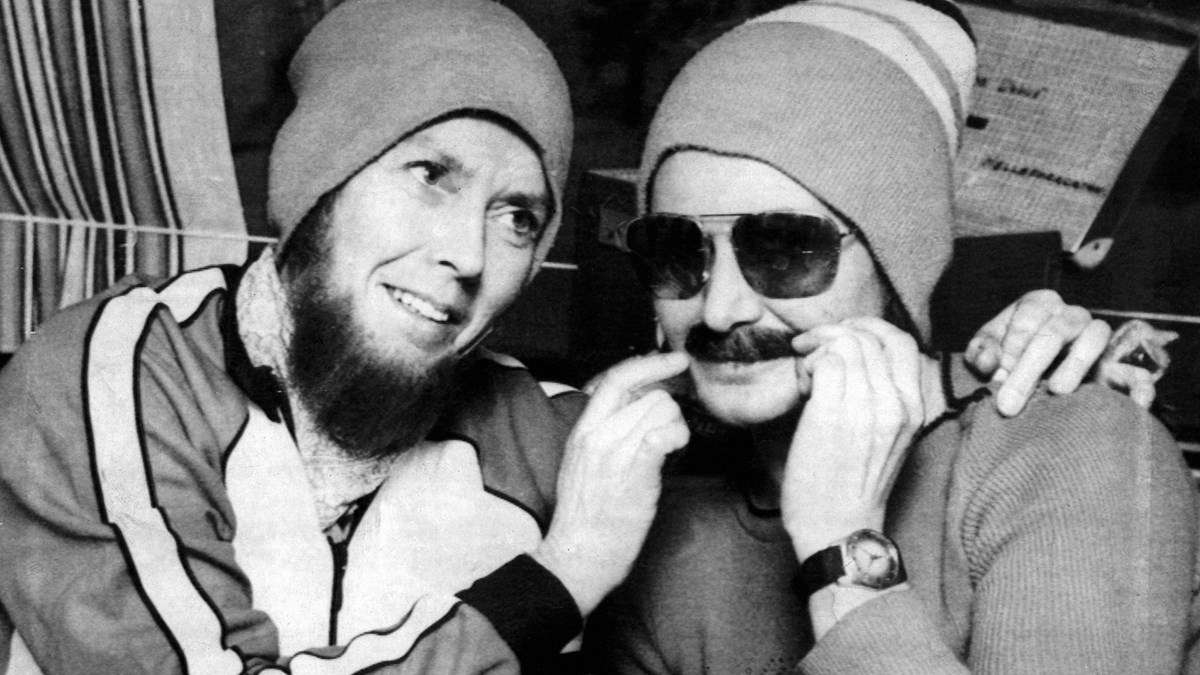
Britt Dohsé and Birgitta Westhed infiltrates the men-only ski race “Vasaloppet” in 1978.
-
“Shame is paradoxical: a desire for self-negation — a complete abnegation of the ego — that makes itself felt in every nerve, every brain cell and synapse that signals, paradoxically, the presence of a self. In this way, shame can be fatal.”
small white monkeys: On self-expression, Self-help and Shame, Sophie Collins, 2017
-
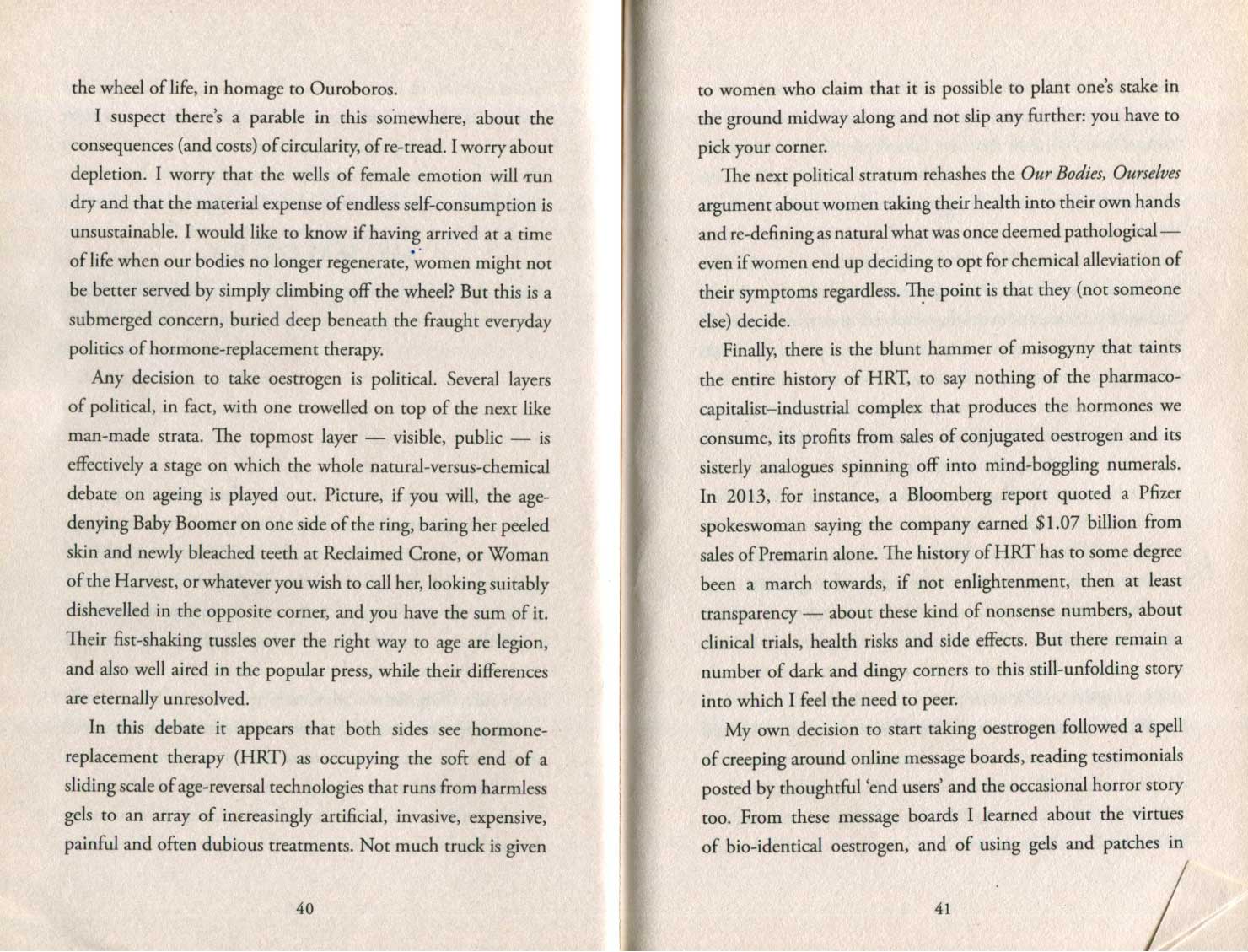
The Middlepause, Marina Benjamin, 2016.
-
“Am 53 (54) on Monday and am pretty much headlong into it. Two and a half years ago I started with some of the Peri symptoms though was still having periods and as my job is pretty demanding, decided instantly to see if I could go on HRT. Did and loved it. Only issue were the migraines. 7 months ago I tapered off and decided to just ride it out and go through it. My migraines are still horrific. They are actually worse. They are up to 4/7 days per week-which is sh*t. I am popping triptans like sweets. I am on topamax to try and prevent them to no avail. My crappy doctor has told me to keep a food diary 🙄 ( I gave up sugar and carbs pretty much completely two years ago) and don’t drink alcohol or smoke -basically I have zero enjoyment 🤣. I take a cocktail of “herbal” and vitamin drugs -feverfew, q10, magnesium, calcium, vit c and d, sage, black cohosh and St. John’s wort ( that’s to stop me punching someone if I can see through the tears ). I know my migraines are linked to my hormones. My periods never came back so I’m guessing I’m probably menopausal but can guarantee I “officially “ will be in September. I feel like crap. I cry constantly, I am an emotional roller coaster , I can’t bring simple words to mind and sleep is a distant memory. And the hot flushes 🤬. I would go back on HRT in a heartbeat but for the migraines which I need to get rid off. So for that reason and that reason only, I’m going to ride it out. But I feel dreadful pretty much every day. My moods are all over. Has anyone found anything to help with their mood swings? And what dosage? I think I’d feel better if I could see light at the end of the tunnel with an end date. This thing effing sucks. There. Finished”
Post from Menopause Reddit forum. (Published with permission from author).
-
“Because it is resistant to being put into language, shame becomes restless and mutable in description. In Elizabeth Strout's story collection Anything Is Possible, shame is depicted both as a sausage skin and as a needle. It is internal and external — something that encases the subject in a pearly film, rendering her movements slow and jagged, as well as a sharp object, one that can pierce the subject's body and get lodged there, in her hest, where it will sit next to her heart like a hairball. Shame can also exist independently of our bodies — it needn't physically touch us. Selima Hill has shame as a white balloon, and Nuar Alsadir as a dog. Both dog and balloon require us to animate them, to keep them alive, to give them a degree of credence: we must feed and walk and touch them, we must blow them up with some effort in order to change their object status from passive to active.”
small white monkeys: On self-expression, Self-help and Shame, Sophie Collins, 2017.
-
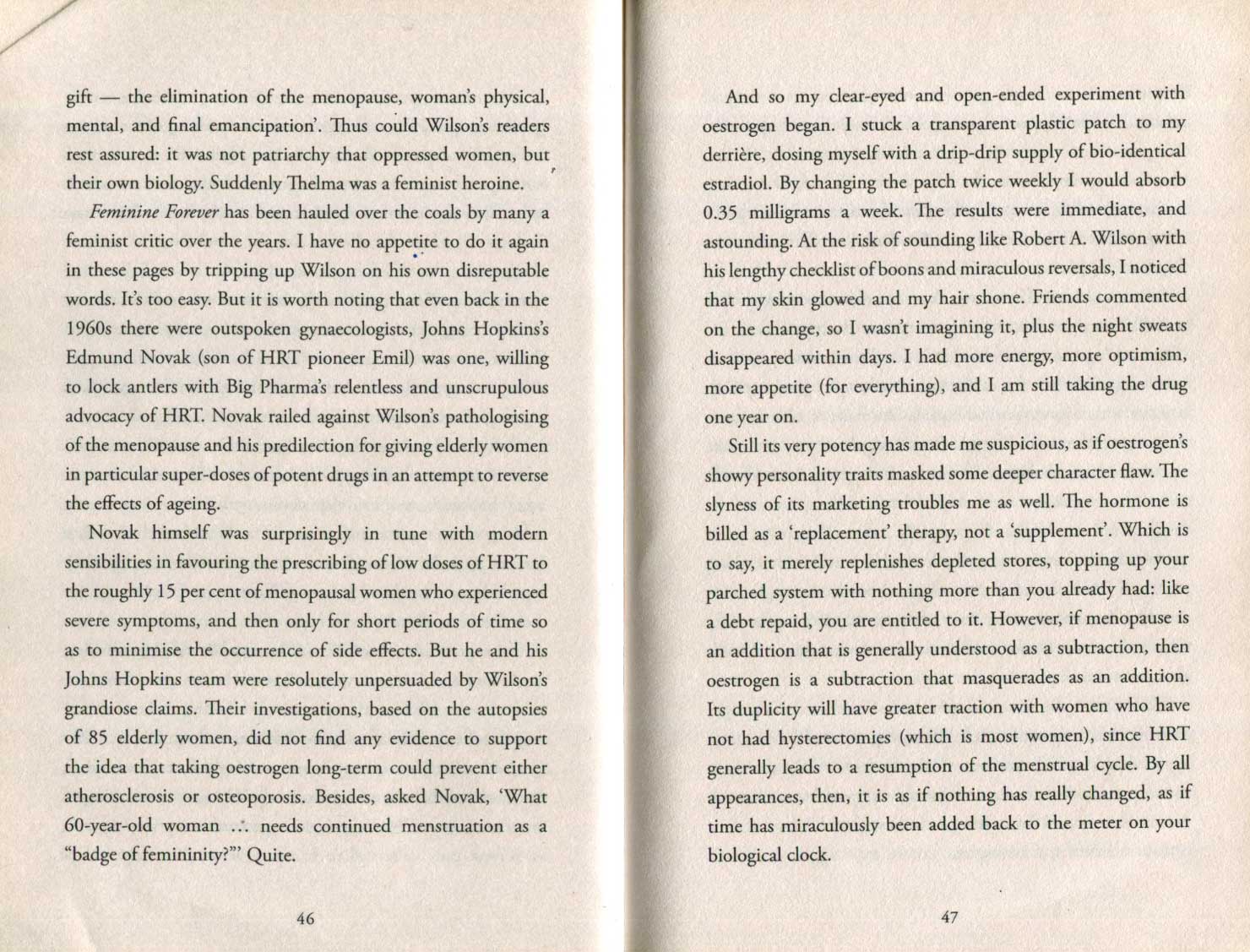
The Middlepause, Marina Benjamin, 2016.
-
Sisters, Lovers, and Monsters: A Feminist Utopian Design Approach to Menopause Wellness, lecture by Shaowen Bardzell.
-
“As we were changing we found we were frequently feeling angry. This surprised us and embarrassed us. We had grown up feeling that we needed to love everyone and be loved by everyone. If we got angry with someone or they with us, we felt in some sense that we were failures. There were many ways we had learned to cover up our anger. Many have accused us et being shrill. Our mood is far more complex. Our critics hear only the anger, and anger separated from, real issues is a distortion. The anger that is in us is a starting point for creative change and growth.”
small white monkeys: On self-expression, Self-help and Shame, Sophie Collins, 2017
-
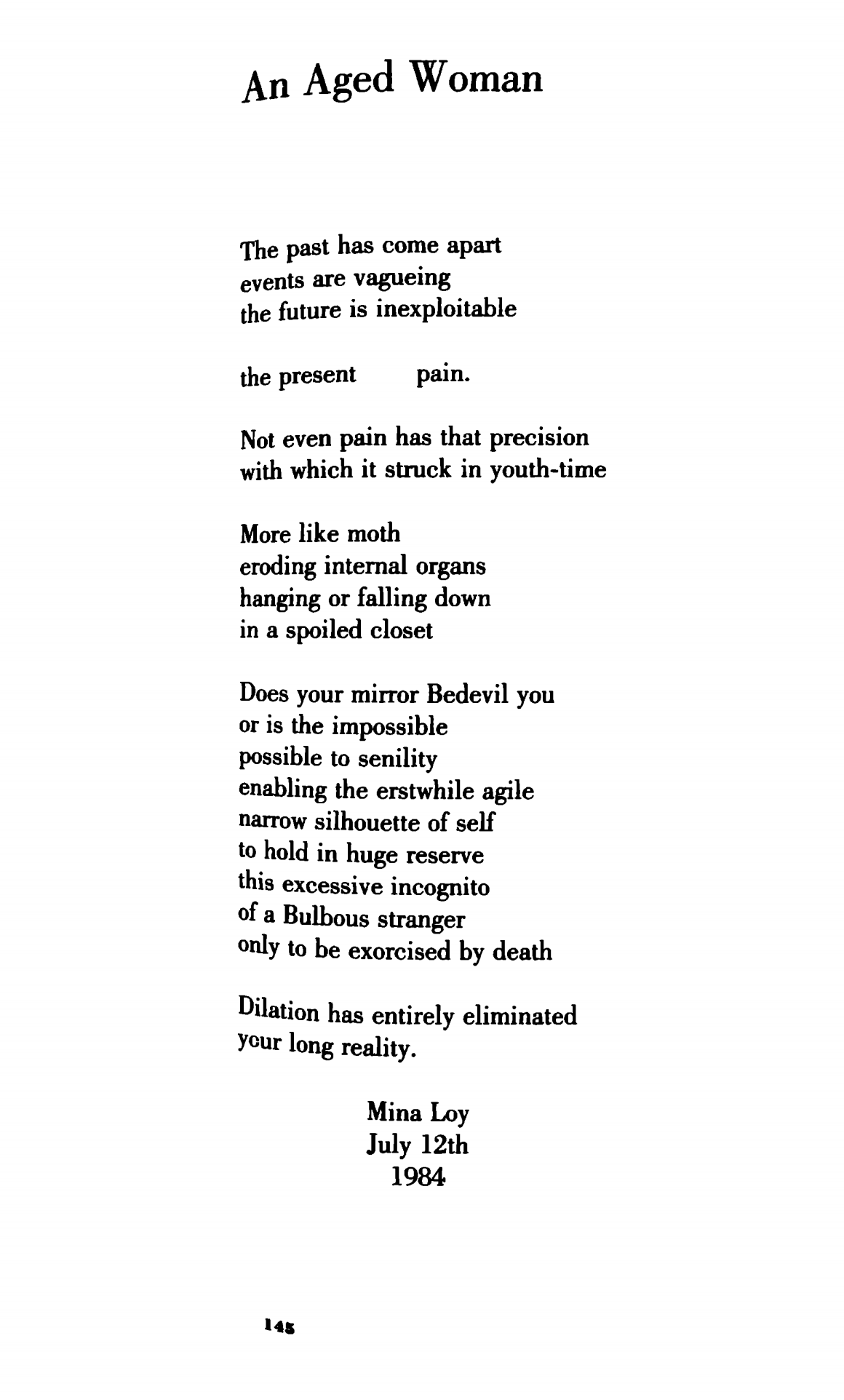
An Aged Woman, Mina Loy, 1984.
-
“Once we have reached certain age, it's hard to be reconciled to the fact that people are always going to be impatient with us. In the past, I was never aware of the existence and meaning of gestures such as rapidly giving assent, avoiding eye contact, and repeating ‘yes, yes, yes’ like clockwork. Or checking the time, or rubbing one's nose — these days I fully understand this entire performance for expressing the simple phrase: ‘Give me a break, you old bag.’ I have often wondered whether a strapping, handsome young man would be treated like that if he were to say the same things as I do? Or a buxom brunette?”
From p.32 Drive Your Plow Over the Bones of the Dead, Olga Tokarczuk, 2009.
-
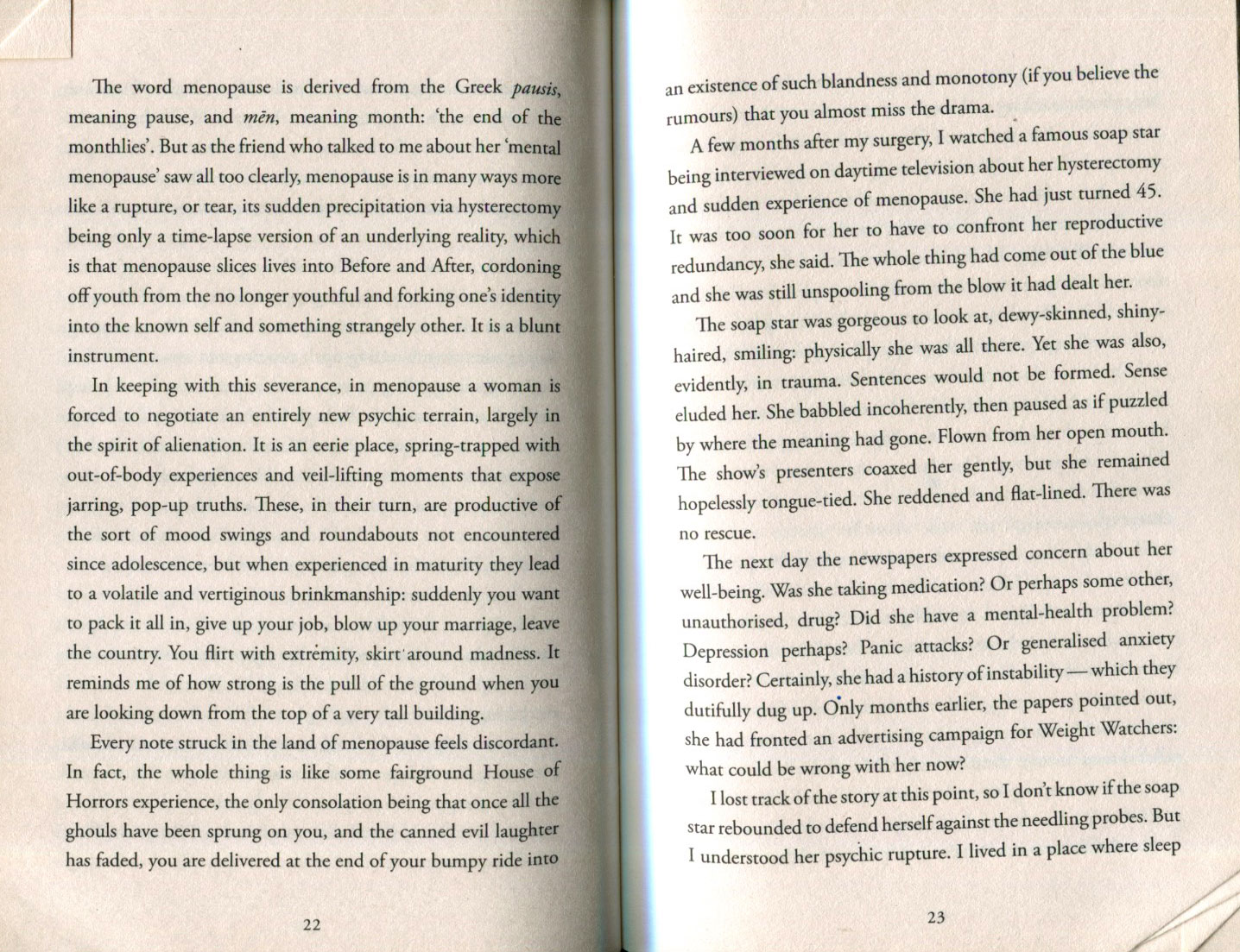
The Middlepause, Marina Benjamin, 2016.
-
“If we called it 'Oestrogen Deficiency Syndrome' would the world take the Menopause more seriously? I have my suspicions.”
queermenopause, Tania Glyde, 2020.
-
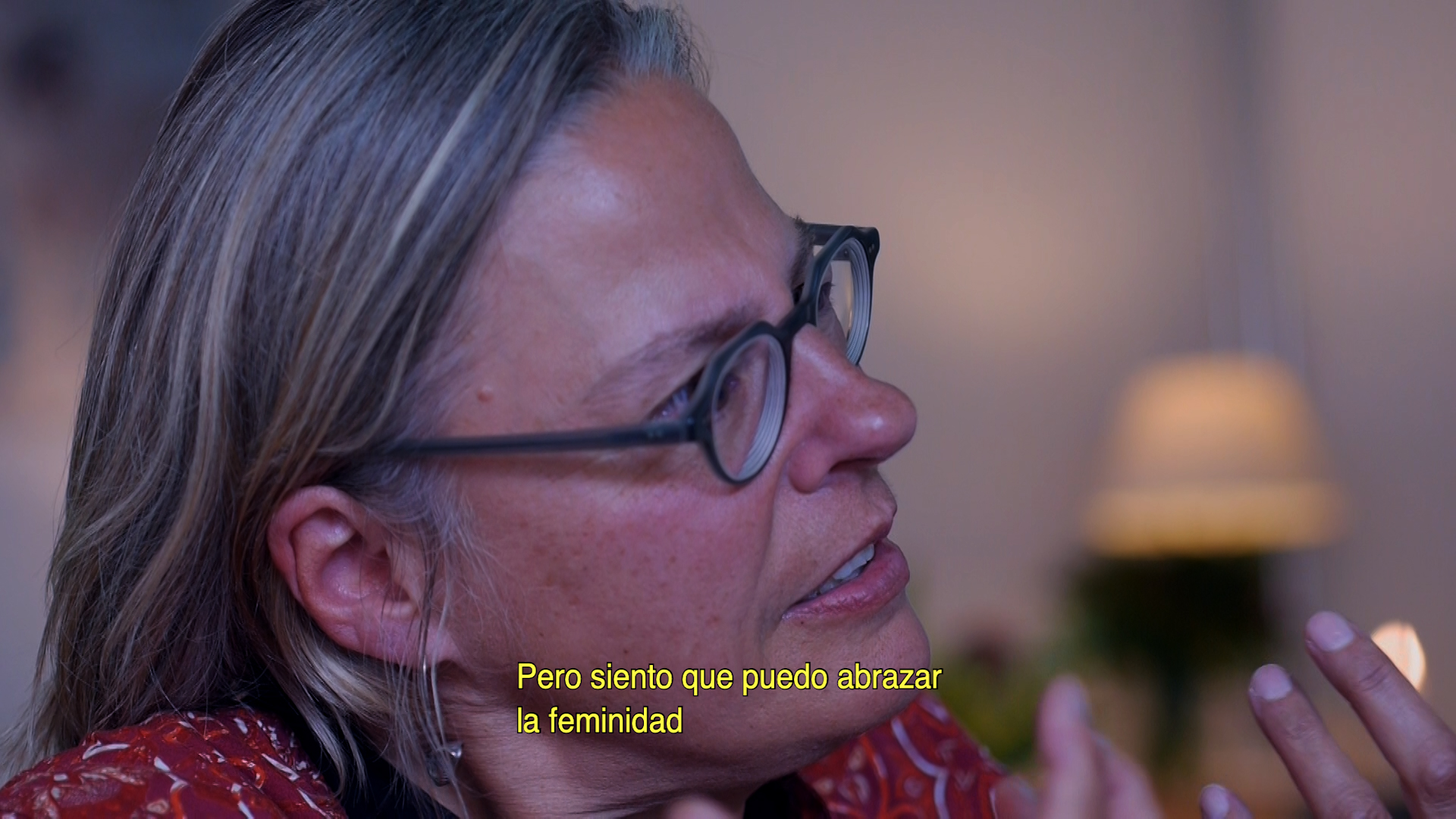
“I feel I can embody femininity more now, than before. Or my idea of femininity at least.” Video still from Cry Till I Die, Johanna Ehde, 2019.

